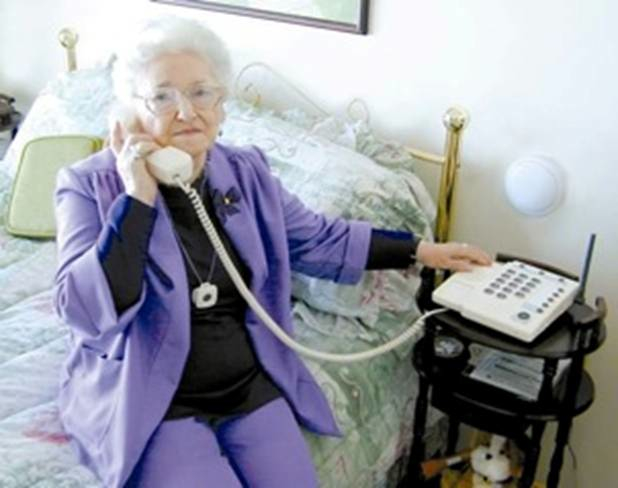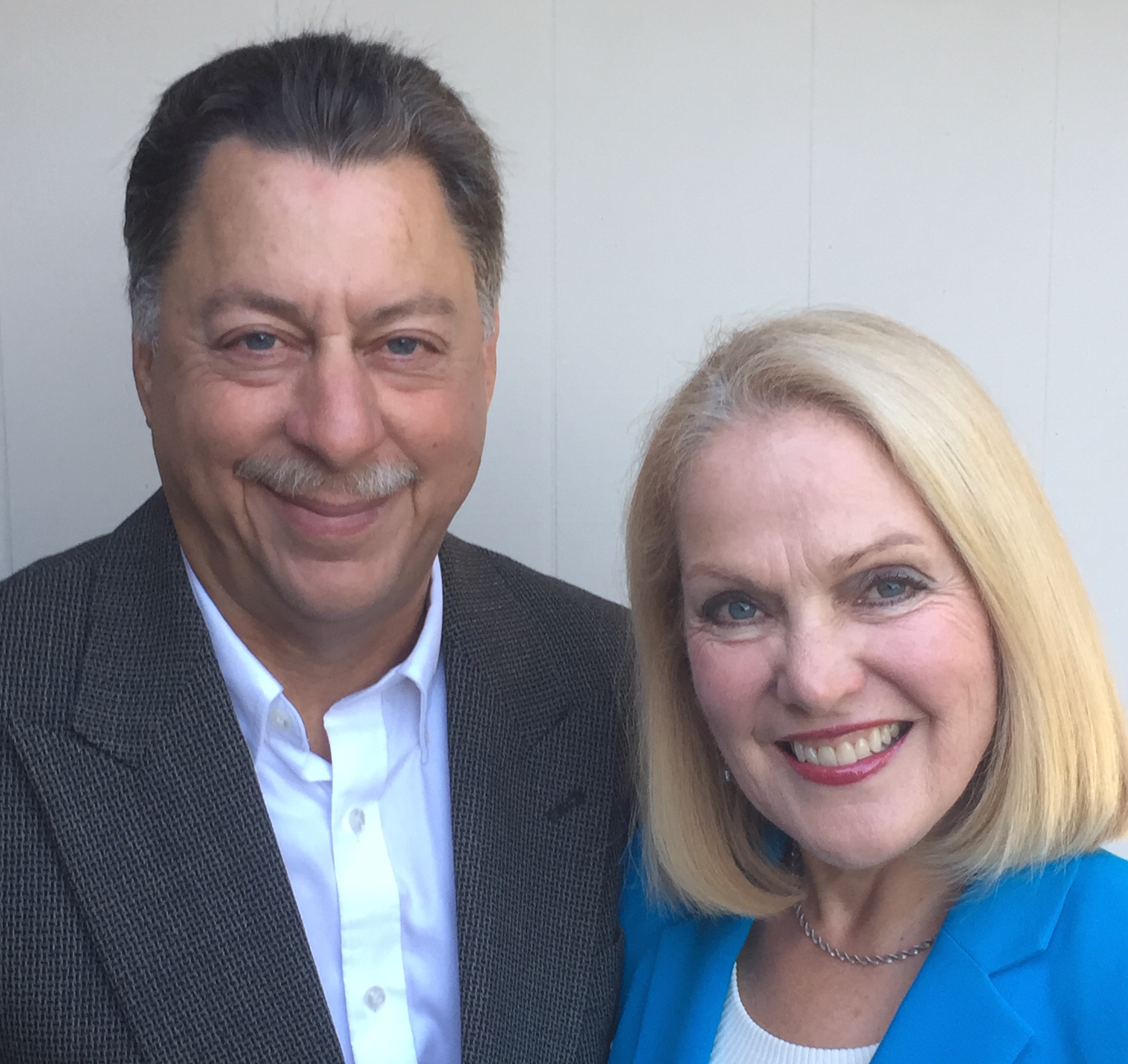
Oct 9, 2020 | aging, aging investor, elder investor, elderly, finances for elders, financial advisors, financial capacity, financial judgement, handling money for aging parents, senior investor
Financial professionals often use the term “financial wellness”, referring to a client’s comfort level with their assets in retirement. That sounds good. But is there any connection between finances and wellness of the body and mind in retirement? Perhaps there is a vague belief that if you’re financially secure, all is well. In reality, how much money you have does not automatically make you physically nor mentally well, nor does it protect anyone against the one thing many people fear most: Alzheimer’s disease. Dementias are no respecters of the wealthy. No one is immune to brain disease.
You may hear the well-worn adage, “Without your health, you have nothing”. OK, that’s not completely true either. Even with declining health related to aging, you may still have excellent quality of life. That is a matter of perspective, and a matter of using assets you have to make the most of life, even with disabling conditions. The one factor that makes for a more secure longevity is what you can afford in terms of care, as aging takes its toll on independence.
Research clearly shows that how we live our lives, our healthy habits or lack of them is responsible for about 70% of how we age. Aging is different for each person, with the other 30% of the picture directed by genetics. Suppose you have a client with longevity running in the family. That may affect your client’s life span but it will not guarantee a great “health span”; i.e., how long one is healthy. What we already see with our aging population is an increase in disabling illnesses in seniors coping with diabetes, heart disease, obesity, high blood pressure and yes, Alzheimer’s disease and other dementias. Genetically predisposed to live long? How fun can it be to live to be 100 if you have a combination of these illnesses, cutting off the things that make life worth living for most of us?
It is extremely unlikely that any financial professional is going to convince a client to lose weight, exercise, stop smoking or cut out junk food so they can enjoy retirement more. That’s not your job. Managing assets is your job and the assurance you can provide is that your client, with a strategically managed investment portfolio, will be able to afford high quality care in old age.
What does high quality care mean for one’s retirement years? It means that if enough assets are available, your client will never have to go to a nursing home. It means that they can afford well trained caregivers at home from high quality agencies, licensed, bonded and insured.
Here’s an example from real life with one of our clients at AgingParents.com, the companion site to AgingInvestor.com. Timothy is 97 years old, living in a lovely home he’s been in since 1960. He is widowed. He needs a walker. He doesn’t cook for himself. He’s very alert but with lung disease, he’s frail. He has a high-end agency providing care management as well as caregivers day and night. He has the means and the right to spend his last days in his own home. Even if his health deteriorates further, he can afford a Registered Nurse to oversee his treatment or give additional skilled care to him at home. Licensed home health agencies can give skilled nursing to anyone at home for a price. A concierge physician can also visit him at home and direct the medical treatment for any illness or chronic condition. That is high quality care, and it comes only at a high quality price.
If you are in the business of managing client assets as they age, don’t just talk about how fun retirement will look at age 90 because they have plenty to spend. That may not be true at all if health is an issue. At that age, declining health is usually problematic. Be truthful. Let your clients know about how you are working to protect them in longevity, no matter what health conditions they may face. That protective spirit feels good to people, knowing you’re watching out for them and that you support the notion of staying in one’s home to the end of life. You have foresight they may lack. And you know the dollars they’ll need for what is likely to become necessary with long life.
If you do not know details of just what dollars those are, the nuts and bolts of how much it actually costs to pay for the numerous kinds of care a person may need, you can quickly find out. It’s laid out for you in our book, Hidden Truths About Retirement & Long Term Care, available at AgingInvestor.com and on Amazon. Increase your expertise! Get your copy today by clicking here
By Carolyn Rosenblatt, RN, Attorney, AgingInvestor.com and AgingParents.com

Nov 13, 2019 | ageist, aging, aging investor, declining health, diminished cognition, elder investor, elderly, finances for elders, financial advisors, financial capacity, financial judgement, handling money for aging parents, handling money for seniors, investor, retirement, senior investor, seniors finances
At its Senior Protection Conference on November 12, 2019, FINRA took a cell phone poll of broker-dealers. They wanted to find out how many were worried about aging registered representatives at their firms. The result: 65% were worried, according to the report published in Financial Advisor. Yes, aging B-Ds are a problem.
Here at AgingInvestor.com, we’ve been sounding the alarm about this problem since 2016, when we published our book, Succeed With Senior Clients: A Financial Advisor’s Guide to Best Practices. “The Elephant in the Room” chapter dives into how impairment in advisors affects the industry and how that most definitely will affect their work with clients. A B-D or advisor whose memory and judgment are impaired, even in the early stages, can expose the firm to liability for mistakes these folks make. Cognitive decline should not be taken lightly.
The speakers at the conference offered attendees very little concrete advice on how to address the problem of an impaired advisor. What could one expect of them? They have no training nor skill set in identifying diminished capacity themselves. Without expertise, their discussions lack action plans.
As aging experts ourselves (RN, Elder law attorney and geriatric psychologist) and a resource to the industry, we question the suggestion that one should wait for “performance issues” to surface before any firm does anything about an impaired professional in its midst. If there is a “performance issue” visible to management, it is likely that it existed for some time and harm to clients already could have occurred. The notion is reactive, not proactive. Isn’t that contrary to the essential philosophy of financial planning itself to look ahead, strategize and don’t wait for a crisis??
Waiting for a manager to call a special team assigned to address the problem is not the best approach, as we see it. For one thing, most firms don’t have a special team that would serve the purpose of knowing what to do with an impaired advisor. Yes, every firm would be well protected if such a team were formed and that is something we always recommend. However, failing to screen advisors with any in-house tools when impairment is suspected is to ignore the lurking possibility of harm to clients. What do we mean by an in-house tool? Start with a checklist.
On our website is a free downloadable Financial Advisor’s Checklist: 10 Red Flags of Diminished Capacity to help you spot the warning signs in clients. There is no reason any firm could not use relevant parts of the same tool to spot signs of diminished capacity in its own employees. It is not across-the-board applicable to the professional as compared with a client showing red flags but some points do apply to anyone. For example, memory loss, failure to appreciate the consequences of decisions, confusion, loss of ability to process basic concepts are all on the checklist and are universal warning signs.
What Can You Do With An Advisor You Think Is Impaired?
Proactive steps are essential. Here are our recommendations:
- First, record your observations of changes in the advisor’s behavior. For example, forgetting appointments, failure to meet on schedule with clients, seeing too many blank stares in your interactions with him or her, becoming withdrawn from interactions can all be signs of trouble a manager must address. They could be associated with cognitive impairment or with other health conditions. Managers need to ask the advisor about what they and other colleagues see that looks like a possible red flag.
- Ask about general health issues, which can directly impact how an advisor does the job of handling clients. Is it nosy? Yes. Is client financial safety at stake if you don’t ask? Yes. Take the risk of opening the conversation. That is smart. Waiting for a disaster is not.
- Establish an in-house policy for what should be recorded by colleagues and reported to managers about possible signs of cognitive decline and the direction you want to take after signs are identified. The policy should be in writing and distributed.
- Have a plan to closely watch the apparently impaired advisor.
Asking the advisor to work with someone to supervise transactions is one option. Reviewing how the advisor is managing his or her work at short intervals is another option. And with obviously impaired folks who do not themselves recognize their own cognitive changes (not an uncommon thing), have a suspension or graceful exit means to stop the impaired person from putting clients at risk. This falls under what those conference speakers vaguely referred to as “other arrangements”. Be specific.
This is uncomfortable territory for managers, compliance officers and for colleagues of older advisors in firms. However, the FINRA poll is telling. If this problem were not rising in our midst, 65% of those polled would not be worried. If you are concerned where you work, get your copy of Succeed With Senior Clients: A Financial Advisor’s Guide to Best Practices, now or get a live or online presentation from us at AgingInvestor.com. Don’t put your firm and your clients at unnecessary risk.
By Carolyn Rosenblatt, RN, Elder law attorney, Consultant, AgingInvestor.com

Sep 5, 2019 | aging, aging investor, cost of aging, declining health, diminished cognition, elder investor, elderly, finances for elders, financial advisors, financial capacity, financial elder abuse, financial judgement, handling money for seniors, investor
Attempts to scam money from seniors never stop. And the thieves keep getting better at thinking up ways to extract information from older folks. Here’s another one—a different phony Medicare trick.
People hear ads on TV about genetic testing and how it can predict disease and protect them. They also hear ads that they’re not getting all the Medicare benefits they deserve. Who doesn’t want to get all the benefits they should get? It’s a perfect moment for scammers.
They may call your retirement-aged client and tell them that new genetic testing is available that Medicare will pay for, worth thousands of dollars. Of course, all your client has to do is to give them their Social Security number and the free testing kit, signup papers, or other inducement will be mailed to them immediately.
Let’s be clear: Medicare does not pay for genetic testing as a “new benefit”. If for any reason such testing were needed, a physician would order it and explain why it was needed. Such testing would not be ordered without any discussion with one’s MD.
Your client should never, ever give out a Social Security number or other personal information such as date of birth or address over the phone. Your client must never accept a genetic testing kit not ordered by one’s own doctor. If it is accepted and the cheek swab, DNA test or anything else is given to the sender, your client may be billed directly, potentially incurring a debt for thousands of dollars. It would be a sad day for your client to mail in a claim for reimbursement to Medicare for a fake benefit and realize that the claim is denied. They’re on the hook for the full price.
These kinds of scams are used to get information to commit identity theft and Medicare fraud. No matter how smart your client is, anyone can be caught off guard and tricked.
What Advisors Can Do
Here are some ways to let your client know you care about their financial safety.
- Prepare a friendly form letter to send to all clients over age 65 and inform them about this scam. Warn them not to fall for it.
- Keep abreast of all the latest scams in over 30 categories at the Federal Trade Commission, which explains what they are and how they work. Keep clients advised.
If identity theft has happened, direct your client to the Federal Trade Commission website for instruction on what to do.
Carolyn Rosenblatt, RN, Elder law attorney, AgingInvestor.com
About Carolyn Rosenblatt and Dr. Mikol Davis
Carolyn Rosenblatt and Dr. Mikol Davis are co-authors of The Family Guide to Aging Parents (www.agingparents.com) and Succeed With Senior Clients: A Financial Advisors Guide To Best Practices. Rosenblatt, a registered nurse and elder law attorney, has more than 45 years combined experience in her professions. She has been quoted in the New York Times, Wall Street Journal, Money magazine and many other publications. Davis, a clinical psychologist and gerontologist, has more than 44 years experience as a mental health provider. In addition to serving his patients, Davis creates online courses and products to assist professionals and the public with understanding aging issues. Rosenblatt and Davis have been married for 34 years.

May 9, 2019 | aging, aging investor, cost of aging, declining health, diminished cognition, elder investor, elderly, finances for elders, financial advisors, financial capacity, financial elder abuse, financial judgement, handling money for aging parents, handling money for seniors, resources for senior, resources for seniors, scammers, senior citizen investor, senior investor, seniors finances
The Senior Safe Act allows you to hold transactions when you suspect financial abuse of a client. The Act is designed, at least in theory, to allow time for the trusted contacts you have on file to take appropriate action. Many of those victimized by predators or manipulated by unscrupulous family have dementia and have lost their judgment about what makes sense financially. The Act urges you to get trusted contacts and provides that you are not breaking privacy rules to contact them in the reasonable belief that your client is being financially abused. The length of time you can hold a requested transaction can be as long as a month. This is where the Senior Safe Act has missed the mark.
Let’s look at the reality of impaired elders who are in charge of their wealth on the family trust. The trust is in order, and if the elder recognizes that he or she is experiencing decline in mental ability, that trustee may choose to resign. Simple. But that is not what happens in too many cases. For many persons who have cognitive decline and dementia, the elder does not recognize that he is impaired at all. “I feel fine!” he tells his worried family. When asked to resign as trustee, having total control over (theoretically) millions of dollars in a trust, the elder flatly and stubbornly refuses. Meanwhile, financial abuse by predatory people can continue unabated.
When an older person experiences cognitive decline, it typically has a very slow onset. Short-term memory loss does not raise enough red flags for those closest to the elder to take any action. “She’s just getting old” they say dismissively. But memory loss is often the first and earliest warning sign of Alzheimer’s disease, the most common form of dementia. The odds of having Alzheimer’s disease by age 85 are at least one in three. Think about your own older clients. Some live well beyond age 85. The risk of dementia rises with age. Short-term memory loss interfering with daily life is not a normal part of aging. Financial abuse and cognitive impairment often go together.
When financial abuse reaches a visible level, the advisor may do what the law allows and call the trusted contact person, usually an adult child. The advisor hopes that the call will somehow trigger something and the abuse will be stopped. But here is a reality check: The family can’t accomplish anything needed in two weeks or even a month if you hold transactions then. Here is a real case example of just such a situation, showing how long it really did take.
In our work with a family at AgingParents.com we saw rampant financial abuse of an elder by a family member. The elder had dementia but had not been formally diagnosed by his doctor. Over 70% of his income was going to the predator. He was asked to resign as trustee by his two adult children, who were reasonably worried that he was going to give away all his cash and further encumber his home. The dad, whom we’ll call Gene, had been developing dementia for at least two years. He felt obligated to the predator and was totally powerless in resisting her demands for money. He just kept writing checks, draining his own resources. It was clearly a case of financial manipulation.
We were involved in working to persuade Gene to allow what his family trust provided: to have his daughter, Jennie, become the successor trustee. He agreed, then reneged. He accepted the logic and then refused to accept it. The kids had no choice but to use the law to take over control. Their father was too stubborn to resign as trustee when asked, even with the entire family presenting a united front, asking and respectfully begging.
The trust, like many such documents provided that Gene could be removed as trustee by his appointed successor, his daughter, after two physicians had declared him to be incapacitated for handling his own finances. A court decision was not required. However, getting him to two doctors willing to assess him and put their observations in writing was a challenge that took months to accomplish. The total time spent getting the change of trustees accomplished according to the terms of Gene’s trust was eight months.
His children were the trusted contacts in the advisor’s file. They knew about the abuse and were in agreement with the advisor that Gene had to stop being the trustee. The adult children had to hire consultants (AgingParents.com), have meetings, hire an attorney, and try various methods to get the job done. Their time energy and thousands of dollars were expended to prevent an even worse outcome, which was being left to support their aging father if he were to totally deplete his own funds.
The takeaways:
- Though well intended, we do not expect that the Senior Safe Act will do much to stop financial abuse because of the short time allowed for a financial professional to hold transactions. In Gene’s case, the predator would have been happy to wait a mere two weeks or a month before resuming the financial manipulation of Gene.
- Know that any older impaired client may not understand that he or she is cognitively impaired and will ignore pleas to resign as trustee with total control over any family trust.
- If you see that an older client is showing signs of cognitive decline, do not wait until it gets worse. Reach out at the time of your first suspicions of trouble. The family or other trusted persons may well have a better opportunity to persuade an elder to transfer power over finances to the appointed successor before complete loss of capacity. Expect this to take time.
In the case described above as a result of ongoing financial abuse, nearly all of Gene’s cash was depleted during the eight months of effort on the part of his adult children to have him removed. The advisor did the right thing but too much of Gene’s cash was depleted in the period when the abuser could keep manipulating him for those months of effort by family to have him removed as trustee.
By Carolyn L. Rosenblatt, RN, Elder law attorney, AgingInvestor.com
If you are seeing abuse and feel lost about how to stop it, contact us at AgingInvestor.com for a confidential consultation with our nurse-lawyer, geriatric psychologist team so you can do everything possible to protect your vulnerable client.

Apr 25, 2019 | aging, aging investor, declining health, diminished cognition, elder investor, elderly, finances for elders, financial advisors, financial capacity, financial judgement, handling money for seniors, health, senior investor, seniors finances
Clients Without Family: Financial Planning With “Elder Orphans”
Every financial advisor will eventually come across an aging client who is essentially alone in the world. The elder may be single, widowed, or otherwise without a partner. Some are members of the LGBTQ community and never had children. Others were childless, or have lost children and significant others in their long lifetimes. The end result is that the usual support systems that exist for others are not available to these clients when they may need support the most.
Some refer to these elders who are alone with no family as “elder orphans”.
Heidi is an example. She has a financial advisor who has worked with her over decades. He referred her for advice, which she wanted and I visited her at home. She is 90 and lives alone in her own house, which she owns outright. She has a modest portfolio and is comfortable. She was widowed 20 years ago and she has no children, nor any relatives in the U.S. She relies on her best friend and neighbor when she needs help. This need is increasing now that her vision is impaired. When I spoke with Heidi I asked her about her one best friend. She mentioned that this neighbor is 86, but is “doing pretty well”. Heidi had recently fallen twice in her home, but fortunately escaped serious injury from those falls.
Heidi has a will and a trust, power of attorney and healthcare directive. The appointed person on those documents is her cousin who lives in another country. If an emergency occurs, it is not at all clear who would be available to assist her.
This situation is a disaster waiting to happen. The risk of another fall, vision problems that will likely prevent her from driving, and the age-related risks to her friend the 86 year old who could also become disabled or unavailable are all looming. I ask if her financial advisor has discussed the future with her, possible other living arrangements, a local person for a healthcare agent and what to do when she can no longer drive. “No” she replies, “we’ve never gotten into that”.
I urged Heidi to contact her financial advisor right away so plans could be made and her safety assured. She also needed to speak with her estate planning attorney to update her documents, ensuring that an appointed local person had authority to assist in any crisis or if Heidi loses independence. She is close to needing help now.
Think about your book of business and whether you have any “elder orphans” in it. If so, there are things any responsible advisor should address with such clients. Here are three essentials for every advisor’s discussion.
- First, the legal documents. The advisor can get permission from the client to contact the estate planning attorney and find out what plans exist for an appointed person to step in and take over the reins when or if the client becomes impaired. a local appointee is critical. Someone has to be able to make financial decisions if the client loses the ability to make them independently.
- Next, alternative living arrangements. A 90 year old with impaired vision who has fallen at home may need to consider options of where to live with help available onsite. The financial advisor knows what assets are available to pay for a choice such as assisted living. The advisor should bring this up and ask the client about what he or she wants.
- The need for a local appointed person to be not only the advisor’s trusted contact, but your client’s person to reach in the event of an emergency. An appointee in another country is not going to be of immediate help. Explore other choices.
The advisor needs to expand the limits of the usual role of simply managing the money with elder clients who do not have any family. To keep you on track and aware of the special planning these aging investors need, get your free checklist of points to address at AgingInvestor.com. With it, you can be sure of what you need to cover in your planning conversations with you “elder orphan” clients. Download Your Advisor’s Seven Point Checklist— Best Planning For Aging Clients With No Family now so you can excel in appropriate future planning.
Carolyn Rosenblatt, RN, Attorney, AgingInvestor.com

Apr 10, 2019 | aging, finances for elders, financial advisors, financial capacity, financial elder abuse, financial judgement, handling money for seniors, investment news, scammers, senior citizen investor, senior investor, seniors finances
Warn Your Aging Clients About A New Telephone Scam–Fake “Social Security” Calls
Carolyn L. Rosenblatt, RN, Elder law attorney, AgingInvestor.com
Scammers targeting your aging clients are getting smarter about how to fool them. Thieves can use spoofing computer software to trick the recipient of a call by showing a “real” number on caller ID. Pretend caller ID isn’t new but using it to target seniors on Social Security is a cruel tactic used to intimidate seniors. Here’s how it works. The evil caller has your older client’s telephone number and knows him to be at least of Social Security age. When the call comes in, it shows on the ID that yes, it’s Social Security. The caller immediately tells the elder in an authoritative voice that her Social Security number has been blocked. Of course this draws the expected reaction from most people–fear. They are not going to question what it means to have the SS number “blocked” or if that is even possible. (It isn’t.)
The caller says it is urgent and that in order to “reactivate” the SS number, the elder must act immediately, or their Social Security benefits will be affected. As your senior clients had paid into Social Security since its inception they don’t want to lose it. The scammer convincingly fakes concern and wants to “help”. All your aging client has to do is pay a fee and the number will be unblocked, they’re told. Many elders have heard of identity theft and believe that this person is going to help them prevent unauthorized use of their SS number, because that is what they hear on the call. Of course the caller then needs to “verify” the number and your client complies and recites the number. Instantly the number can be put into use any number of ways identify thieves have devised. And worse yet the elder pays them the “fee”.
Even if you believe with all your heart that YOUR aging loved is not dumb one and won’t fall for any of this, do not be so sure. Anyone can be caught off guard. Scammers are very clever at using fear and other strong emotions to manipulate unsuspecting aging parents to give up information without thinking about whether the request for it makes sense. You want to warn them. You want to remind them that they are never to give out any personal information like a SS number to a person they did not call themselves. Everyone’s Social Security numbers are potentially floating around in cyberspace enough as it is, without handing them to a telephone stranger who is lying to get them to pay money. You can warn your aging parents that the Social Security Administration will never ever call and ask anyone to verify the SS number. You can remind them that even if the caller ID shows something that looks real, it can be fake because spoofing software can show anything the scammers want it to show.
Millions of elders are approached regularly by this telephone scam and many others. My own mother in law, now passed, was very smart at fending off such phony calls and smelling a scam. But by age 95, that scam sensor she used to have seemed to fade. One day a man called her landline and said he was from Medicare. He just wanted to “confirm her Medicare number”. She had an active Medicare claim going on at the time, and we were helping her address the details. Because she had that claim, she fell for the trick. She gave the caller her full name, address, date of birth, mother’s maiden name, and her Social Security number. Fortunately we found out within a day and were able to jump into action to change all her accounts and credit cards. It took four months to straighten out the mess. The scammers got nothing. We got a lot of work, and had to take her to her banks and financial institutions in person to change everything. She felt bad because she was supposed to know better. Yes, but she forgot. We were lucky to find out before anything worse happened.
The takeaway here is that financial advisors are in a unique position of trust with your clients and they are likely to read a friendly letter from you, just giving them a heads-up about the latest scam. We urge you to create an old fashioned series of letters warning them about scams, about things happening in your industry that affect them, such as the Senior Safe Act and just staying in contact. When they hear from you in a friendly way, it reminds them of why they like and trust you. You’re more likely to retain them that way.
No time to write? Let us help at Aging Investor.com. We have free, pre-made client education material created just for seniors. You can simply download and send them out at intervals to all your retirement-aged clients. To access these items, ebooks and checklist, go to the Books and EBooks menu on our home page and find Resources for Clients. It can only make you look good to your investors!
|
|
Dr. Mikol Davis and Carolyn Rosenblatt, co-founders of AgingInvestor.com
Carolyn Rosenblatt, RN, Elder Law Attorney offers a wealth of experience with aging to help you create tools so you can skillfully manage your aging clients. You will understand your rights and theirs so you can stay safe and keep them safe too.
Dr. Mikol Davis, Psychologist, Gerontologist offers in depth of knowledge about diminished financial capacity in older adults to help you strategize best practices so you can protect your vulnerable aging clients.
They are the authors of "Succeed With Senior Clients: A Financial Advisors Guide To Best Practice," and "Hidden Truths About Retirement And Long Term Care," available at AgingInvestor.com offers accredited cutting edge on-line continuing education courses for financial professionals wanting to expand their expertise in best practices for their aging clients. To learn more about our courses click HERE
|

Jan 30, 2019 | aging, aging in place, cost of aging, cost of long term care, declining health, diminished cognition, elderly, finances for elders, financial advisors, financial capacity, handling money for seniors, long term care, nursing home
Most advisors who even ask this question of their retirement-aged clients never spend time on it. About 90% of those asked say they want to remain in their own homes as long as possible. That sounds fine. Until one faces physical decline, cognitive impairment or both. The advisor providing competent guidance about financing aging at home had better know the facts.
None of us like to think about losing physical ability or needing help. We abhor the thought of losing our total independence. In our view at AgingInvestor.com, the only advice clients are getting is about the long term picture is whether or not to purchase long term care insurance. Since most people don’t do that, the actual costs of living at home can boggle the mind. It’s the best advisor’s obligation to educate your client about the risks of the plan to age in place, just as it is your obligation to educate them about balancing their portfolios. You are giving the client added value if you take the time to talk them through the risks and dollars they may need to have available.
Here are some briefly stated facts from a real case in which an 89 year old wanted to age in place and his wife promised he would never have to leave home.
At the outset of his declining health, he had about $3M in invested assets. His portfolio was healthy and balanced for his age, according to conventional wisdom. He began to lose his ability to walk due to multiple medical problems. His wife hired home helpers, three days a week at first. As his conditions progressed he needed more and more help. He had to have a wheelchair, and a special van. A stair chair was installed in their two-story home. By the time he reached age 95, he was spending over $150,000 a year on care and assistance around the clock. In the space of time during which he was steadily losing independence until he passed away at 95, his assets were depleted to the tune of $2M. He lived in a higher end market for the needed help but the reality is that in any market, the kind of care he needed would be very expensive.
For him, aging in place was more costly than a skilled nursing facility would have been. Home modifications, private caregivers, (none of whom were licensed nurses), equipment, medications, adaptive devices, etc. drained his resources by 2/3. And not everyone has as much invested as he had to even start the journey. His wife had her own assets and she paid the cost of household maintenance, taxes, food, and utilities with her funds. Had she relied on him for those things too, there would likely have been little left at the end of his life.
It is not all doom and gloom however. Many clients live rather well in their last years without all the care this gentleman needed. Some get by with family caregiving help, and some have fewer medical conditions. But if you are going to competently help your clients plan for longevity, it’s essential to understand the real out of pocket costs of aging in place or anywhere else outside the home. If you want to add value to your services to older clients, know what they need to know to properly anticipate what can happen with living into one’s 90s and beyond.
Learn all the actual costs of care for every aging client option in our book, Hidden Truths About Retirement & Long Term Care. Be well prepared to walk your client through the scenarios they could face in their futures. You distinguish yourself from other advisors when you sharpen your knowledge in planning for longevity.
By Carolyn Rosenblatt, RN, Attorney, AgingInvestor.com

Jan 28, 2019 | aging, aging in place, aging investor, cost of aging, cost of long term care, custodial care, declining health, diminished cognition, elder investor, elderly, finances for elders, financial advisors, financial capacity, financial elder abuse, financial judgement, handling money for seniors, health, long term care, nursing home, resources for seniors, seniors finances
Your clients are getting ready for retirement. You’ve done the calculations, balanced the portfolio and advised them of what income to expect. You’ve discussed how much spending is ok. You used your program and your analysis was thorough. You’ve done your job, right?
Not exactly. There is probably no algorithm nor program that will calculate your client’s individual profile of health risks that will likely lead to the expense of long term care. That can be a whopper. Maybe you’ve suggested long term care insurance. Most people don’t choose to buy it. For those who do, the benefits are limited and the “elimination period” (deductible) is thousands of dollars. There go your careful calculations. At least 90% of folks don’t have that coverage. Now what?
But how can you predict what’s going to happen to anyone’s health in retirement, you ask. You can’t be precise, but you surely can make some rational observations and give advice accordingly. Those observations consist of two parts: what you can see with your own eyes and what you can glean by asking a few basic questions. If you think asking any client about their health conditions is too nosy or not your job, consider that if the client needs long term care and runs out of money because of it, they’re not going to think much of you. And the cost can wipe out their security.
Asking about health issues is not nosy at all. Rather, it’s what any smart advisor planning for longevity must do. Let’s not keep pretending that everyone stays the same physically and mentally from the start of retirement to end of life. Our bodies go through wear and tear and things break down. Cognitive decline affects at least a third of people who reach the age of 85. The risk of Alzheimer’s disease keeps climbing after that. Now, what was that life expectancy you were using in your calculation? Was it age 99?
Let’s start with what you can see in your client with your own eyes. (If they’re not in front of you, perhaps Skype is an option). Is your client obese, as about 40% of the U.S. population is? This leads to heart disease, stroke, and diabetes, among other diseases and conditions. The medical care people receive in many cases will save them from dying but they then live with disabilities. And yes, they will be very likely to need expensive long term care. Neither health insurance nor Medicare will cover long term care. Such help as a part time caregiver at home is how most folks start out with long term care. Your client pays out of pocket most of the time. Did you calculate how much it costs as well as how long they will likely need it? If they have multiple medical conditions, and have started long term care, they’ll probably continue to need some form of it for all their remaining years.
Find out what you may not know from simply observing your client’s appearance by asking questions. You can make your own list or get a health care provider to help you with a few targeted questions. You will need to educate your client as to the reason why you need this information. It’s to help them plan for how much to save in their retirement years.
Here are some examples of basic questions that can help you predict the need for possible long term care:
- How’s your health these days? Has a doctor told you that you have any long term conditions?
- Are you taking medications? What are they for?
- Do you smoke?
- Are you concerned at all about any health issues you have at this time?
Do you recall your parents’ ages when they died?Your aging clients will not be eager to talk about the potential need for long term care. When you told them about what to expect for “out of pocket medical costs in retirement”, you did not give them a figure that included long term care. Long term care is not “medical” according to Medicare. Rather, it is called “custodial care”. The client probably will not bring it up, so you must do this.
When you have done your observations and gotten answers to your health-risk related questions at least there is a place to start a meaningful conversation. You can give them figures as to the cost of typical kinds of care, such as a non-medical home care worker. We at AgingInvestor.com recommend starting your projections at age 80 as to when a person might need physical help. Many of us know someone who did require help with at least some part of his or her life at that age. Then you can talk about how any condition your client identifies for you, such as high blood pressure, diabetes, etc. as shortening normal life expectancy and increasing the risk for needing help. If your client already has difficulty with some normal daily activity such as walking or bathing, they are definitely at high risk for needing paid help sooner than a person without these problems.
Clients may be completely unaware of such things as the hourly cost of a home care worker, what assisted living costs each month and what home modifications cost if they are able to remain in their own home. You can find a thorough discussion of these and many other parts of long term care in our book, Hidden Truths About Retirement & Long Term Care, written specifically for financial advisors like you.
Every conscientious advisor needs to wake up to the reality that your retirement income calculator omits the reality check of health problems. We’re not talking about nursing homes, but every other kind of care and help most people will need as they age. If you do want to help clients who are reaching retirement age to plan realistically, include the health risks you can see or learn about by asking.
By Carolyn L. Rosenblatt, RN, Elder law attorney, AgingInvestor.com

Jan 27, 2019 | aging, aging investor, financial advisors, financial capacity, financial elder abuse, financial judgement, handling money for aging parents, handling money for seniors, seniors finances
Scams, theft and fraud with seniors’ money is a growing problem. Now the Wall Street Journal reports that banks in our country calculated a 12% increase in financial elder abuse just in the last year. Why do the thieves pick on grandma or grandpa so much? It looks so ugly to take advantage of an elder.
Your aging clients, whether getting advice or investing in your institution, are targets without a doubt. They hold a disproportionate amount of our country’s wealth. And you can help stop them from being victimized. Over $36B a year is stolen from elders in the U.S. alone.
Your aging parents are easy targets for scammerThe Ss for lots of reasons. Elders in this country hold a disproportionately high level of wealth compared to younger people. Some have accumulated significant assets and they may not see themselves as vulnerable at all. Clearly, diminishing cognition makes it easy for thieves and manipulators. Cognitive decline affects at least a third of people over age 85. Your aging client may not have the awareness any longer to spot a fishy-sounding line from anyone. Widowed clients live alone and are isolated, ready to engage with that friendly sounding, cheerful voice from the clever scammer on the phone.
Thieves stay in contact and weave a trap over time. Many aging folks are dependent on others for care, for help at home and for social contact. Dependency makes them vulnerable. Unscrupulous family members lead the pack of those who seize on that vulnerability and trust to rip off their elders. It’s all too easy to influence an aging person to give a “loan”, access to an account, or power of attorney to a person with ulterior motives, which essentially creates a license to steal. Eventually they all want your elderly client to give them money. That’s where your awareness can thwart them.
Banks are making efforts step up their reporting of suspected elder abuse, but that is not enough to thwart the crime. The Senior Safe Act gives you, the financial professional protection if you report suspected financial abuse. Great. But how about stepping up your contact and review of transactions with any elderly client before abuse happens? Too often, the customer-facing bank employee does not see anything wrong until far too much money has been drained from the elder’s account. After the abuse has occurred, it is too late to get the money back. And there is hesitation at the banks, even when they are warned. To put bluntly, banks can add to the problem.
One example of this involved a client of ours at AgingParents.com where we consult with families and elders. She was the daughter of an 87 year old dad who had some memory problems and was frail, losing independence. Her father was a wealthy man, in a long-term relationship with a younger woman. She had manipulated him into giving her access to his family’s trust account into which his significant income was deposited each month.
The man’s daughter found out after a suspicious withdrawal from the account and she contacted the bank immediately. She traveled to her father’s state, went to the bank in person and showed them the trust, which did not have the girlfriend’s name on it anywhere. She asked them to stop the access by the girlfriend. The bank complied and put the funds into an account to which the girlfriend did not have access. After the man’s daughter left the state, the girlfriend took the elder back to the bank and told him to say that he wanted her on the account. Presto! The bank complied and the girlfriend then had access once again, only one day later. The bank aided the girlfriend in financial abuse of their own elderly customer, despite a specific request to stop it and evidence of manipulation. The matter ended up in litigation. We can only say “how ridiculous!” The financial professional, bank employee or manager should have known better. The picture was classic: warning had been given, paperwork proving the problem was given to the bank, and the bank agreed to take the pushy girlfriend off the account. Then they turned around the next day and did the opposite, just because the elderly customer was standing there. Never mind that he was manipulated into saying what the woman told him to say, prodding him as he stood there. That kind of scenario is what needs to change.
If you are now supposed to report abuse, you definitely need to know what the red flags of diminished capacity look like and how to see the warning signs of financial abuse. At AgingInvestor.com, we offer accredited courses to train financial service employees, compliance officers and managers in how to spot warning signs of cognitive decline and financial elder abuse.
Get your free checklist of the red flags of diminished capacity here.
Here are some takeaways:
1.The Senior Safe Act gives you some immunity if you report abuse. It offers you no guidance in how to spot elder financial abuse.
2. Aging clients with diminished capacity are, of course, much more vulnerable to manipulation by an unscrupulous romantic “friend”, family member or stranger on the phone or internet. They need your protection.
3. Odds are that by the time you report suspected abuse, the money is already gone and authorities cannot get it back. It makes more sense to be proactive in protecting aging clients rather than merely reporting abuse. Learn about how to do that by training.
By Carolyn Rosenblatt, RN, Elder law attorney, AgingInvestor.com

Nov 15, 2018 | aging, aging investor, cost of aging, cost of long term care, custodial care, declining health, elder investor, elderly, finances for elders, financial advisors, financial capacity, financial judgement, handling money for aging parents, handling money for seniors, health, investor, long term care, seniors finances
Your clients are getting ready for retirement. You’ve done the calculations, balanced the portfolio and advised them of what income to expect. You’ve discussed how much spending is ok. You used your program and your analysis was thorough. You’ve done your job, right?
Not exactly. There is probably no algorithm nor program that will calculate your client’s individual profile of health risks that will likely lead to the expense of long term care. That can be a whopper. Maybe you’ve suggested long term care insurance. Most people don’t choose to buy it. For those who do, the benefits are limited and the “elimination period” (deductible) is thousands of dollars. There go your careful calculations. At least 90% of folks don’t have that coverage. Now what?
But how can you predict what’s going to happen to anyone’s health in retirement, you ask. You can’t be precise, but you surely can make some rational observations and give advice accordingly. Those observations consist of two parts: what you can see with your own eyes and what you can glean by asking a few basic questions. If you think asking any client about their health conditions is too nosy or not your job, consider that if the client needs long term care and runs out of money because of it, they’re not going to think much of you. And the cost can wipe out their security.
Asking about health issues is not nosy at all. Rather, it’s what any smart advisor planning for longevity must do. Let’s not keep pretending that everyone stays the same physically and mentally from the start of retirement to end of life. Our bodies go through wear and tear and things break down. Cognitive decline affects at least a third of people who reach the age of 85. The risk of Alzheimer’s disease keeps climbing after that. Now, what was that life expectancy you were using in your calculation? Was it age 99?
Let’s start with what you can see in your client with your own eyes. (If they’re not in front of you, perhaps Skype is an option). Is your client obese, as about 40% of the U.S. population is? This leads to heart disease, stroke, and diabetes, among other diseases and conditions. The medical care people receive in many cases will save them from dying but they then live with disabilities. And yes, they will be very likely to need expensive long term care. Neither health insurance nor Medicare will cover long term care. Such help as a part time caregiver at home is how most folks start out with long term care. Your client pays out of pocket most of the time. Did you calculate how much it costs as well as how long they will likely need it? If they have multiple medical conditions, and have started long term care, they’ll probably continue to need some form of it for all their remaining years.
Find out what you may not know from simply observing your client’s appearance by asking questions. You can make your own list or get a health care provider to help you with a few targeted questions. You will need to educate your client as to the reason why you need this information. It’s to help them plan for how much to save in their retirement years.
Here are some examples of basic questions that can help you predict the need for possible long term care:
- How’s your health these days? Has a doctor told you that you have any long term conditions?
- Are you taking medications? What are they for?
- Do you smoke?
- Are you concerned at all about any health issues you have at this time?
- Do you recall your parents’ ages when they died?
Your aging clients will not be eager to talk about the potential need for long term care. When you told them about what to expect for “out of pocket medical costs in retirement”, you did not give them a figure that included long term care. Long term care is not “medical” according to Medicare. Rather, it is called “custodial care”. The client probably will not bring it up, so you must do this.
When you have done your observations and gotten answers to your health-risk related questions at least there is a place to start a meaningful conversation. You can give them figures as to the cost of typical kinds of care, such as a non-medical home care worker. We at AgingInvestor.com recommend starting your projections at age 80 as to when a person might need physical help. Many of us know someone who did require help with at least some part of his or her life at that age. Then you can talk about how any condition your client identifies for you, such as high blood pressure, diabetes, etc. as shortening normal life expectancy and increasing the risk for needing help. If your client already has difficulty with some normal daily activity such as walking or bathing, they are definitely at high risk for needing paid help sooner than a person without these problems.
Clients may be completely unaware of such things as the hourly cost of a home care worker, what assisted living costs each month and what home modifications cost if they are able to remain in their own home. You can find a thorough discussion of these and many other parts of long term care in our book, Hidden Truths About Retirement & Long Term Care, written specifically for financial advisors like you.
Every conscientious advisor needs to wake up to the reality that your retirement income calculator omits the reality check of health problems. We’re not talking about nursing homes, but every other kind of care and help most people will need as they age. If you do want to help clients who are reaching retirement age to plan realistically, include the health risks you can see or learn about by asking.
By Carolyn L. Rosenblatt, RN, Elder law attorney, AgingInvestor.com

Apr 18, 2018 | aging, aging investor, diminished cognition, elder investor, elderly, finances for elders, financial advisors, financial capacity, financial elder abuse, financial judgement, handling money for aging parents, handling money for seniors, seniors finances
It seems that regulators are fond of creating new mandates for you without telling you how to implement them and what risks might be involved. The new FINRA rule that says you must “try” to get a trusted contact person (TCP) for new clients is illustrative.
First of all there is no firm requirement that you actually get a TCP for anyone. All you have to do is make an attempt. If the client says “no”, you’re out of luck in trying to solve any problem that may exist without anyone to call in the event of an issue you see. Such issues might include someone ripping off your client or your client really losing his marbles. The intent of the rule was good. The idea was to increase protections for vulnerable elders. It’s just that the way clients act and the issues you are sure to see with one TCP have been ignored in regulators’ creation of this mandate.
Research has given us important information about protecting elders from financial abuse. We know that family members are the most frequent abusers of elders. Guess who most elders would think of as a TCP? The family member, of course. The idea of a single TCP is flawed from the outset. If the idea is to keep your client financially safer, you don’t want to be limited to the potential abuser as the TCP. That defeats the purpose.
Here at AgingInvestor.com we are on a mission to keep elders safer. We make every effort to fill in the blank places your regulators leave when they come up with a mandate like getting a TCP for your clients. Here are our recommendations on this subject and why we say what we say about TCPs.
First, we believe every advisor should not only “try” to get a TCP for every client–we think you should insist on it as a matter of your intelligent, proactive senior office policy. Every client, new and existing should be approached with a courteous, respectful explanation and request to name a TCP you can contact in case of need. You let clients know that you have a policy to protect them from potential predators who are out there trolling for your clients, particularly the seniors. You could write this explanation and request up and send it around or bring it up at every portfolio review.
Next, we recommend that you get not just one TCP for every client, but three. The reason for this is that since family members are often the abusers of vulnerable people, you need someone else to call if “sonny boy” is ripping off dad’s account and dad is too impaired to realize it. “Sonny boy” just might be the one TCP his dad, your client named and you would then be stuck with no way to protect your client in that situation. Someone outside the family would be ideal. This could be the estate attorney, a competent friend, or a clergy person your client trusts. Any of them would need to be able to intervene when learning of suspected financial abuse of your client. A third TCP could be another family member your client also sees as trustworthy. With information going from the advisor to three people at once, the risk of abuse is lessened and the chances of effective action in the event of abuse are increased.
Finally, we recommend that you consider all the risks involved in a decision to reach out to the TCP when you see red flags of diminished capacity in your client, or when you see warning signs of financial abuse of your client. You do need a written internal office policy that directs you as to the observations, documentation and steps to take when an issue comes to your attention. Legally, you are probably on firm ground, carrying out the intent of the FINRA regulation. However, you don’t want to set your client up for harm.
For instance, if the client is in the middle of a contentious divorce and the ex- spouse is the TCP, do you want to release information about your client’s finances that could harm your client in the divorce proceeding? Give yourself time to discuss the options with other, knowledgeable people in your office, or group. The value of having a proactive office policy for aging clients in this situation is that you have others to ask and weigh in with their points of view.
If you are not sure about the red flags of diminished capacity and what you should look for, get your free downloadable checklist here. Likewise if you are not clear about classic warning signs of financial abuse get your free checklist for those here too.
Need help with that smart, proactive senior office policy? Ask for a consultation at AgingInvestor.com and get the guidance you need from our nurse-lawyer, geriatric psychologist team
Carolyn Rosenblatt, RN, Elder law attorney, AgingInvestor.com
<p><code> </code></p><div class="signature"><table style="border: 2px solid #999; border-style: solid; background-color: #f5fff5;"><tbody><tr><td style="width: 110px; vertical-align: text-top; align-content: center;"><div style="border: 1px solid #eee;"><img class="alignleft" src="http://www.aginginvestor.com/wp-content/uploads/2015/04/DavisRosenblattPublicityPhoto.jpg" alt="" width="123" height="116"></div></td><td><h4>Dr. Mikol Davis and Carolyn Rosenblatt, co-founders of AgingInvestor.com</h4><p>Carolyn Rosenblatt, RN, Elder Law Attorney offers a wealth of experience with aging to help you create tools so you can skillfully manage your aging clients. You will understand your rights and theirs so you can stay safe and keep them safe too.</p><p>Dr. Mikol Davis, Psychologist, Gerontologist offers depth of knowledge about diminished financial capacity in older adults to help you strategize best practices so you can protect your vulnerable aging clients.</p><p><a href="http://www.aginginvestor.com" target="_blank" rel="noopener">AgingInvestors.com</a> offers accredited cutting edge on-line continuing education courses for financial professionals wanting to expand their expertise in best practices for their aging clients. To learn more about our courses click <a href="https://agingparents.leadpages.co/ceu-choices/" target="_blank" rel="noopener">HERE</a></p></td></tr></tbody></table></div>

Feb 13, 2018 | aging, aging investor, cost of aging, elder investor, finances for elders, financial advisors, financial capacity, financial elder abuse, financial judgement, finra, handling money for aging parents, handling money for seniors, investor, power of attorney, senior investor, seniors finances
The regulators are trying. They want to help advisors protect aging clients from financial abuse. They don’t want you to fear doing something wrong if you refrain from handing over assets to what looks like an abuser. But not living in the real world of how to stop abuse by determined abusers has its disadvantages. The new rule tells you who is at risk (elders and other impaired adults). It tells you that you just need a reasonable suspicion of abuse, not unquestioned evidence. It tells you what a temporary hold is and how long it can be: 15 days, 25 at max. Sounds ok. Until you actually know how long it takes for the legal steps to halt abuse.
Here at AgingInvestor.com we see this problem in the world of families and those who want to rip them off, not from inside an institutional setting or financial services firm. The world from here looks different from what FINRA imagines. There is usually no way anyone can stop abuse in 15 days or even in 25. We explain. In a real case, the kind this rule is designed to affect, we worked with family in an unfortunately typical situation of an unscrupulous son trying to squeeze money out of his 90 year old father who had dementia. The advisor had seen the pattern. He knew the son never did well on his own and he had been given handouts from dad for years. Dad, whom we’ll call Joe, lived in a nursing home. He needed help with everything and his memory was shot. He was easily confused. Yet his advisor never questioned his ability to effect financial transactions. But when the son, we’ll call Jake, brought his frail father into the advisor’s office demanding $50,000 plus access to the cash management account, the advisor was sure it was abuse. He knew his client was too confused to disagree with Jake. The advisor dragged his feet and didn’t provide the check his client had asked for, pushed by Jake, Over a month later, he felt obligated to give his client the $50K, which of course Jake got right away from Joe. The advisor didn’t have Rule 2165 but he knew that Joe’s daughter Rhoda was the appointed person as power of attorney and successor trustee. He didn’t have permission to contact her, so he did it, as he said “on the QT”. Rhoda was upset. She called us for advice. She found us through her own advisor who had the sense to send her to a resource who could answer her questions and guide her.
First we looked at the trust and what it said about Joe being removed as trustee or resigning as such. Two doctor’s letters were needed, verifying that he was no longer competent to manage finances if he was to be removed as trustee. We advised her to get those letters asap. Rhoda lived out of state from Joe. She found the doctors and flew into town to take him to the appointments. Fortunately the doctors were able to say that Joe had indeed lost his capacity for handling his money. A couple of weeks after the appointments, Rhoda got the letters she needed. She then had to take them to Joe’s estate planning attorney, who met with her and eventually gave her a Certificate of Trust, showing that she was now the successor to Joe and was in charge of his money. She then had to get the Certificate to his advisor’s firm, which had to review it and after two weeks, they accepted it. Only then was Rhoda able to stop any further disbursements from Joe’s account without her permission. Her brother was furious. His gravy train had stopped. The advisor had sent a debit card for the cash management account Joe requested under pressure to Rhoda, not to Joe. Rhoda destroyed it. Abuse stopped in its tracks.
Reality check: this scenario of stopping abuse involved a lawyer, an elder willing to go to two doctors, the cooperation of two doctors, travel between states, the approval of the Certificate of Trust with Rhoda’s name on it through a process by the advisor’s firm and a lot of time spent by Rhoda. The entire matter of protecting Joe from abuse took three months. Rule 2165 supposedly authorizes advisors to “take immediate action” when abuse is reasonably suspected. What is myth rather than reality is how long it takes to actually protect the elder and stop a predator. This was a case of undue influence by Jake who had a history of manipulating his father. And the new rule would not have helped at all. Jake would have happily waited for a mere 15 days to get his hands on the cash. Rhoda couldn’t possibly get Joe removed as his own trustee without the doctors’ letters. This sort of prerequisite of needing doctors to verify incapacity is commonly required in typical trusts. Perhaps the drafters of Rule 2165 never had to go through the process described here in their own lives. If they had, the new rule would provide for a 90 day authorization to hold transactions, rather than a maximum of 25 days. Maybe going forward when the myth gives way to reality, the rule will be revised. For now it is inadequate.
|
|
Dr. Mikol Davis and Carolyn Rosenblatt, co-founders of AgingInvestor.com
Carolyn Rosenblatt, RN, Elder Law Attorney offers a wealth of experience with aging to help you create tools so you can skillfully manage your aging clients. You will understand your rights and theirs so you can stay safe and keep them safe too.
Dr. Mikol Davis, Psychologist, Gerontologist offers in depth of knowledge about diminished financial capacity in older adults to help you strategize best practices so you can protect your vulnerable aging clients.
They are the authors of "Succeed With Senior Clients: A Financial Advisors Guide To Best Practice," and "Hidden Truths About Retirement And Long Term Care," available at AgingInvestor.com offers accredited cutting edge on-line continuing education courses for financial professionals wanting to expand their expertise in best practices for their aging clients. To learn more about our courses click HERE
|

Feb 2, 2018 | aging, aging investor, declining health, diminished cognition, elder investor, elderly, finances for elders, financial advisors, financial capacity, financial elder abuse, financial judgement, scammers, seniors finances
You may have heard of the fake calls from thieves pretending to be from the IRS. It can be a threatening robocall. Or it can be a male with an aggressive manner telling the recipient of the call that they will be arrested for owing back taxes if they don’t pay immediately. These criminals carefully select older people and anyone they consider vulnerable to their fake pressure. Your aging clients could be a target and scammers want to terrify them.
How do they get the names of our aging parents? They buy them. Information is for sale, from lottery entry forms, contests, magazine subscriptions and from hacking whatever can be hacked. Identity information can even be purchased on the black market. “Information brokers” have been around for decades and so have these telephone scams. Supposedly, the entities that sell the names don’t care what the buyer does with them. There are likely millions of names and telephone numbers available to the scammers, given the nationwide nature of their ripoff efforts. Apparently, names and numbers are very easy for them to get.
Here’s how it works: The caller catches the unsuspecting older person off guard. The call is official sounding: “This is Officer James with the Internal Revenue Service and I am calling about an urgent matter! Do not hang up!” Sometimes they are even able to secure a fake caller ID that says “IRS” or looks like a legitimate government entity to those with caller ID. There were also reported cases when they used the name and email address of a CFPB employee.
They then tell the stunned elder that they or their spouse has an overdue debt to the IRS and if it is not paid immediately they will be arrested. Of course, they want the elder to use a wire transfer or a prepaid debit card so the thief can’t be traced. The frightened person will hurriedly comply and realize only later that it was a scam. In the moment of reacting to the threat, they are not thinking clearly. They are moved by fear–just what the thief was hoping for.
No matter how many public service announcements are sent out, and no matter how many Federal Trade Commission, AARP or National Center on Elder Abuse warnings are posted, the scam is still working. We at AgingParents.com think the best way to keep our aging loved ones financially safer is to personally warn them yourself about these scams. They will probably listen to family more readily than they would seek information from the internet or official sources trying to spread the word. Of course, the IRS will never, under any circumstances call someone and demand payment of a debt. Their official communications about taxes are by snail mail.
If these evil scammers were not successful, they would stop doing this. But sadly, it works and they are relentless. My neighbors, many elders, have reported that they have gotten these calls this week. Beware. Please take the time to alert your loved ones to this problem. And don’t think your mentally alert aging loved one is too smart to fall for this. No one is immune from being shocked and intimidated by a sudden call. It can happen to anyone.
We at AgingInvestor.com think the best way to keep your older clients financially safer is to personally warn them yourself about these scams. They will probably listen to family more readily than they would seek information from the internet or official sources trying to spread the word. Of course, the IRS would never, under any circumstances call someone and demand payment of a debt. Their official communications about taxes are by snail mail and that is not likely to change anytime soon.
If these evil scammers were not successful, they would stop doing this. But sadly, it works and they are relentless. My own neighbors, many elders, have reported that they have gotten these calls this week. Beware. Please take the time to alert your clients to this problem. And don’t think your ever so sharp client is too smart to fall for this. No one is immune from being shocked and intimidated by a sudden call. It can happen to anyone.
If you want to send a friendly letter to your clients about this scam and don’t have time to put it together, we make it easy for you. Just go to this link and download a free pre-made letter to send out.
 Revise it with your name or firm name and you’ll look good by showing that you do care about their financial safety. You’ll never regret doing your part to thwart thieves and prevent financial elder abuse.
Revise it with your name or firm name and you’ll look good by showing that you do care about their financial safety. You’ll never regret doing your part to thwart thieves and prevent financial elder abuse.
|
|
Dr. Mikol Davis and Carolyn Rosenblatt, co-founders of AgingInvestor.com
Carolyn Rosenblatt, RN, Elder Law Attorney offers a wealth of experience with aging to help you create tools so you can skillfully manage your aging clients. You will understand your rights and theirs so you can stay safe and keep them safe too.
Dr. Mikol Davis, Psychologist, Gerontologist offers in depth of knowledge about diminished financial capacity in older adults to help you strategize best practices so you can protect your vulnerable aging clients.
They are the authors of "Succeed With Senior Clients: A Financial Advisors Guide To Best Practice," and "Hidden Truths About Retirement And Long Term Care," available at AgingInvestor.com offers accredited cutting edge on-line continuing education courses for financial professionals wanting to expand their expertise in best practices for their aging clients. To learn more about our courses click HERE
|
Oct 12, 2017 | aging, aging investor, diminished cognition, elder investor, elderly, finances for elders, financial advisors, financial capacity, financial judgement, handling money for seniors, investor, NAPFA, senior citizen investor, senior investor, seniors finances
Watch a brief VIDEO about our presentation ⇓

May 8, 2017 | aging, aging investor, declining health, elder investor, elderly, finances for elders, financial advisors, financial capacity, financial elder abuse, financial judgement, handling money for aging parents, senior citizen investor, senior investor, seniors finances
Your older investors are sure it will never happen to them but Medicare fraud can trick anyone. Even those without a hint of cognitive decline can get taken by scammers. At AgingInvestor.com, we educate advisors about protecting clients from elder financial abuse and we thought we had our own family covered. With a 94 year old mother, we are especially alert. We were stunned when mom told us that someone “from Medicare” had called and asked her to “verify” her personal information.
Alice is a sharp 94 year old, living mostly independently in a seniors’ complex. She’s active, does her own shopping and is engaged with her neighbors in the community. She had an issue with Medicare not paying a bill for a service she had received some months prior. With our help, she had undertaken an appeal process, which involves a lot of repetitive paperwork. When a man saying he was from Medicare called, she thought it was about the appeal. Of course it wasn’t. The scammer asked her to “verify” her Social Security number, her address, date of birth and mother’s maiden name and she gave him that information.
A few hours later, she mentioned what had happened and said she had been wondering if it was right to give out that information. We were shocked! How is it that she didn’t see the potential ID thief when we talk about this all the time? We knew we had to jump on this right away to stop the thieves from using the information to open new accounts in her name. Hours were spent the next day calling the two banks where she had accounts, her credit card company, the credit reporting agencies and Social Security. We had to stop the auto debits on her bill payments. We cleaned up the mess.
So far so good. No unauthorized transactions have happened. Her old accounts were closed and new ones opened. Social Security sends her payments to the new account. Fraud alerts are on everything now. Whew! This was a lesson that even the alert older person can get fooled with the right pitch on the phone.
Here’s the takeaway.
Warn your clients: Medicare will NEVER call and ask you for your personal information. Never give it out unless you place a call to order something that you know is legitimate.
Medicare fraud can happen in many forms. This was just one of them. I believe that there was probably a connection between her Medicare appeal and the fraud attempt. It’s too much of a coincidence that they called when she had communication with Medicare going on already with her appeal. The appeal had not yet been resolved. This information got into the wrong hands, making it easy to trick a sharp person by saying he was calling from Medicare. Mom could be just like any one of your older clients.
Why is this important? You’re on the front lines and you have a trusting relationship with clients. Speak up and make basic efforts to educate them about these scams. A lot of money can be drained from an account instantly with all the client’s personal information out there. Make yourself look good. A word from you can remind your aging clients that you care about their financial safety and that you are looking out for them.
Learn more about protecting aging clients from financial abuse in Succeed With Senior Clients: A Financial Advisor’s Guide to Best Practices. Click here to purchase it now. You’ll build your knowledge about aging investors fast.
Carolyn Rosenblatt, RN, Elder Law Attorney, & Dr. Mikol Davis, Psychologist, Gerontologist, co-founders AgingInvestor.com
|
|
Dr. Mikol Davis and Carolyn Rosenblatt, co-founders of AgingInvestor.com
Carolyn Rosenblatt, RN, Elder Law Attorney offers a wealth of experience with aging to help you create tools so you can skillfully manage your aging clients. You will understand your rights and theirs so you can stay safe and keep them safe too.
Dr. Mikol Davis, Psychologist, Gerontologist offers in depth of knowledge about diminished financial capacity in older adults to help you strategize best practices so you can protect your vulnerable aging clients.
They are the authors of "Succeed With Senior Clients: A Financial Advisors Guide To Best Practice," and "Hidden Truths About Retirement And Long Term Care," available at AgingInvestor.com offers accredited cutting edge on-line continuing education courses for financial professionals wanting to expand their expertise in best practices for their aging clients. To learn more about our courses click HERE
|

Apr 24, 2017 | aging, aging investor, diminished cognition, elder investor, elderly, finances for elders, financial advisors, financial capacity, financial elder abuse, financial judgement, handling money for aging parents, handling money for seniors, investor, scammers, senior citizen investor, senior investor, seniors finances
What To Watch For: Aging Clients and The Sweetheart Scam
If it didn’t happen so often, there would be no need to warn your single, widowed clients about it. But every day, someone gets taken in by a “special someone” who appears to have only your client’s interests at heart. The special someone is a scam artist who knows just how to get an unsuspecting lonely man or woman into the web of deception. And then they finagle money out of your client and run.
Some of these scammers are skillful repeat offenders. Some just see an opportunity and proceed to milk it for all it’s worth. Take the case of Tommy, whose wife was ill with cancer. He used to take his clothes to the local dry cleaner every week and he got friendly with the woman who ran the business. She loved to chat and gossip and he was lonely with his caregiving, cooped up with the daily chores he had to do for his ailing wife. Norma, the dry cleaner heard all about it.
Just after his wife passed, Tommy got a visit from Norma. She was so consoling and comforting. He felt like he had a real friend. She had heard about his wife’s illness for over a year and was ever so sympathetic. She also knew he had money. Within a month she had moved in with Tommy.
Over the next six months of giving Tommy her undivided attention, she managed to persuade him to give her “loans” of over $300K. She promised to stay with him forever. He loved the flattery and feeling special. No sooner had Norma gotten the last of what she could easily take, she promptly sold the dry cleaning business and disappeared. This is not such an unusual story.
Here’s what every financial professional needs to know about the Sweetheart Scam. Professional predators comb the obituaries for stories about the beloved widow or widower left behind. They look for those who have been with a deceased who was a business leader, a banker, a financially successful person. They choose the ones who may be likely targets, the survivors who have means. They scope out how to meet them and seize the opportunity to take advantage of loneliness. They will stop at nothing to get in the door. And sooner or later they always need “a temporary loan” or a little help to get out of an unfortunate jam. If it works, they up the ante. This can go on until they have bankrupted a widow or widower. It will at least drain available cash if no one is watching.
That’s where you come in, the financial professional with the ability to notice when unusual withdrawals are coming out of your client’s account. Once the scammer has gotten control over your client’s emotions, it may be too late to stop the scam. Your client is “in love” or at least addicted to the showered on attention. She won’t believe your warning then. The heads-up must come early, before an opportunist has a chance to cast a spell.
Here’s the takeaway: any recently widowed client in your book is a potential target. Do these things:
- Gently raise the subject of being careful of any stranger he/she meets soon after the loss of a spouse. Warn with empathy and facts.
- If your client claims he’s met a “special someone” do some digging. Google the person he names. Ask a few probing questions. See what your client may not be able to see. Share the data you glean with your client.
- Be sure you have contact information for a family member or trusted friend of your client whom you can call if you see something suspicious. Call them if you think your client is in danger, particularly if your client doesn’t want to hear your warning.
That protective posture you take on can save your client from disaster.
Financial elder abuse takes many forms besides the Sweetheart Scam. It is called “the crime of the century”, it is so prevalent. With the right know-how, you can stop it and keep your clients safer. Take a deeper dive into this subject in a book written just for you, Succeed With Senior Clients: A Financial Advisor’s Guide to Best Practices. Get a look at it here.
Carolyn Rosenblatt, RN, Elder Law Attorney & Dr. Mikol Davis, Gerontologist
AgingInvestor.com and AgingParents.com
|
|
Dr. Mikol Davis and Carolyn Rosenblatt, co-founders of AgingInvestor.com
Carolyn Rosenblatt, RN, Elder Law Attorney offers a wealth of experience with aging to help you create tools so you can skillfully manage your aging clients. You will understand your rights and theirs so you can stay safe and keep them safe too.
Dr. Mikol Davis, Psychologist, Gerontologist offers in depth of knowledge about diminished financial capacity in older adults to help you strategize best practices so you can protect your vulnerable aging clients.
They are the authors of "Succeed With Senior Clients: A Financial Advisors Guide To Best Practice," and "Hidden Truths About Retirement And Long Term Care," available at AgingInvestor.com offers accredited cutting edge on-line continuing education courses for financial professionals wanting to expand their expertise in best practices for their aging clients. To learn more about our courses click HERE
|

Apr 17, 2017 | aging, declining health, elderly, financial capacity, financial judgement, handling money for aging parents, health, resources for senior, resources for seniors, Uncategorized
What To Do When Your Aging Client’s Health Is Failing
Financial professionals can find themselves in an uncomfortable position when they have a long time aging client who is in declining health. Of course, you know the client and can see that she’s struggling with a lot of issues. You may want to do something but this stuff is just not in your wheelhouse. Longevity is great but not when you start to lose the ability to manage on your own. What are you supposed to do for these clients?
You’re trained to understand economics, taxes, financial products, planning. But you’re not trained to direct aging people to whatever resources they may need as they get older. If they have family, you may expect family to step up, but you see that it may not be happening. Should you call them? Do you even know them? Do you have your client’s permission? And what if they don’t have family? That’s even worse. Here they are getting frail and more vulnerable by the day and you are just watching helplessly.
It doesn’t have to be that way. You can get acquainted with some basic resources in your area and the areas where your clients live. Maybe they never figured they’d live so long as to actually need help. When they do, you can be a starting point to help them find what’s out there.
Let’s imagine you have an aging client who is having trouble getting around and she needs some help with chores at home. She tells you about it when you ask her how things are going. She is shy to ask for help and reluctant to admit that it’s harder and harder to live alone. You don’t know what to say. Or do you?
One source of help everyone should know about is the Area Agency on Aging. These Federally funded programs connect elders to appropriate community organizations and places to get assistance. Their mission is to help older adults and people with disabilities live with dignity and choices in their homes and communities for as long as possible.
AAAs contract with local service providers to deliver many direct services, such as meals, transportation and in-home services. However, most agencies are direct providers of Information and Referral/Assistance, case management, benefits/health insurance counseling and family caregiver support programs.
Some are incorporated into a county’s health and human services departments. Some are separate. Large states have many AAAs. Smaller less populated states have fewer of them.
One thing you can do now to be ready to assist your own client who may demonstrate a need is to research where the nearest Area Agency on Aging is in your client’s community, download a brochure or information package and let your client know it’s there. If he needs help at home, transportation services, vetted information about local service providers, an AAA is a great place to start.
This whole aging client issue can be a reflection of things you have experienced in your own family. Perhaps you have an aging parent or ill grandparent. Another problem solving source of information is our book the Family Guide to Aging Parents: Answers to Your Legal, Healthcare and Financial Questions
. Learn what’s in it here. It can get you more comfortable with those difficult conversations.
Carolyn Rosenblatt, RN, Elder law attorney
AgingInvestor.com and AgingParents.com

Apr 11, 2017 | aging, aging investor, declining health, diminished cognition, elder investor, elderly, finances for elders, financial advisors, financial capacity, financial elder abuse, financial judgement, handling money for aging parents, handling money for seniors, senior citizen investor, senior investor, seniors finances
In a recent issue of Investment News, a study of financial advisors looked at this question. 591 advisors were asked about their experiences with elder financial abuse. One of the surprising findings focused on those advisors who knew or suspected abuse but did not report it.
A significant percentage of those who did not report abuse gave as a reason that they did not know who to contact. What is most troubling about this finding is that not knowing who to contact is such a simple problem to solve. Historically your regulators have never required that you have the name of a trusted contact for your client in order to open a file for that person. Here at AgingInvestor.com and AgingParents.com, where elder financial abuse comes up often, we think it is extremely short-sighted to be without a trusted contact or two in every client’s file. Isn’t it obvious that you need someone to call if a client gets into danger, whether it’s elder abuse or not? No one gets out of here alive and a client can live for quite a long time, developing cognitive impairment along the way. That puts a person at much higher risk for financial abuse.
New FINRA rules will require that you make “reasonable efforts” to get a trusted contact from your clients. We assure you, reasonable efforts are a lot easier to make when your client is signing up than they are when your client is 92 and forgetful or suspicious of everyone’s motives.
From us, two professionals who have worked with countless elders and their families over the last 10 years, we have three tips for every financial professional handling a client’s finances:
- You can’t ensure that your client will be competent for financial decisions forever. Be realistic! People are living longer and they may develop dementia or other cognitive impairment. Get at least two trusted contacts in every file for every client age 65 or older. Why two or more? One trusted contact might end up being the very person who is abusing your client–a family member.
- Get smart about the basics of recognizing red flags of diminished capacity. We offer a simple free checklist to help you. Click on the green button here to get yours now. These signs are warnings that your client is more vulnerable to manipulation by others.
- Know how to report financial elder abuse. You don’t have to be certain that abuse has occurred. You do need to know who may be doing it, when and how, in general (e.g., pushing your client into large, unexplained withdrawals). A reasonable suspicion is enough. It’s ok if you’re wrong. And you can do it anonymously. Call Adult Protective Services in the county where your client lives if you think someone is ripping off your vulnerable client.
Some advisors are worried that they’ll get sued for reporting suspected financial abuse. This is incorrect. Your regulators want you to report it. If you do what is reasonable, you are not a target. However, if you know that your impaired client is being financially abused and you do absolutely nothing, liability for failure to act is certainly possible.
by Carolyn Rosenblatt, RN, Elder Law Attorney, & Dr. Mikol Davis, Gerontologist, co-founders of AgingInvestor.com
|
|
Dr. Mikol Davis and Carolyn Rosenblatt, co-founders of AgingInvestor.com
Carolyn Rosenblatt, RN, Elder Law Attorney offers a wealth of experience with aging to help you create tools so you can skillfully manage your aging clients. You will understand your rights and theirs so you can stay safe and keep them safe too.
Dr. Mikol Davis, Psychologist, Gerontologist offers in depth of knowledge about diminished financial capacity in older adults to help you strategize best practices so you can protect your vulnerable aging clients.
They are the authors of "Succeed With Senior Clients: A Financial Advisors Guide To Best Practice," and "Hidden Truths About Retirement And Long Term Care," available at AgingInvestor.com offers accredited cutting edge on-line continuing education courses for financial professionals wanting to expand their expertise in best practices for their aging clients. To learn more about our courses click HERE
|

Mar 20, 2017 | aging, Alzheimer's disease, diminished cognition, financial capacity, senior investor
Diminished capacity is sort of a catchall term that can mean different things. A person can have the capacity, for example to create a will or a trust, but at the same time that person might not have the capacity to understand the risks of buying a complex financial investment. Capacity is on a continuum. The more sophisticated the decision needed the more capacity it takes.
Is there any way to measure capacity? Is there a blood test or any other test? We have a number of things in the medical field that help give us clues and data, but there is no one, single thing that tells us for sure. We can’t see inside a person’s thoughts. What we do have is testing of the various areas of the brain, with standardized instruments, that give us information about how a person thinks. We call it neuropsychological testing.
What is neuropsychological testing?
Neuropsychological testing (using groups of related paper and pencil and verbal question and answer tests) can provide useful information to take the question of capacity outside the realm of speculation. Test data provides numbers, scores, something specific.
This kind of testing can give useful information about which tested parts of a person’s cognitive function do or do not compare normally with the tested function of people of similar age and education. When a person falls below a measure of what is normal, and we have test scores to tell us where and how, it can give us guidance about whether to allow a person to keep making financial decisions.
Testing is underused in helping us find out about a person’s mental capacity for numerous kinds of things, such as memory, following verbal instructions, understanding information and learning a new task. Not enough families know about it and request it and not enough others refer clients to the right source for considering it as a tool to give us more information. Perhaps older people resist it out of fear not “passing the test”. If clients secretly know that they are losing their memory and do not want to be found out, they will strongly resist any suggestion of testing.
What can the advisor do?
If you are worried about a client who seems to be “losing it” and you aren’t sure you have enough information about that, you can suggest that the client get a medical checkup, and that he ask the doctor to check into his memory. This is not a sure path to neuropsychological testing, to be sure. Unfortunately, doctors spend very little time with patients these days and a brief visit may not result in the follow-up testing you would like to have done. But in some cases, clients are willing, particularly when encouraged to do so by a concerned spouse or other family member. In spite of obstacles, know that this objective way of measuring things does exist and it can help everyone involved in the senior’s life.
The client’s primary care doctor may refer your client to a neurologist. The neurologist may prescribe this testing which is done by a licensed psychologist or neuropsychologist, who gives the results back to the neurologist.
You’re not a doctor. But you don’t have to be one to see the red flags of diminished capacity. If you are not sure just what to look for, learn all you need to know in an hour by clicking here. Learning best practices for diminished capacity can help you right away.
By Carolyn Rosenblatt, RN, Elder Law Attorney & Dr. Mikol Davis, Gerontologist co-founders of AgingInvestor.com

Feb 16, 2017 | aging, financial advisors, financial capacity, financial elder abuse, financial judgement, handling money for seniors
You may have an older client who has an adult child living in their home. We are not talking about co-housing or multi-generational households folks choose for a variety of sensible reasons. This is not about the daughter who gives up work to move in and take care of your aging client. Rather, this is a somewhat hidden population of adult children who have never quite been able to support themselves.
There may be a mental health issue, substance abuse or other condition which impairs the individual’s ability to reliably earn a living. Some of these adults have never succeeded in the workplace. Others have had a setback of some kind and never were able to regain or keep employment afterward. These adult children of your clients may be middle aged, yet dependent on your client for the basics of life: food, clothing and shelter as well as other benefits.
At AgingInvestor.com, we hear from the families, usually the siblings of the adult child who does work yet who receives free lodging and support from the parent. The common thread is a co-dependent relationship between parent and the “problematic” adult child. The parents may feel guilty about the unsuccessful child, they may be intimidated by that offspring or they simply may lack the courage to insist on some other arrangement. You may be thinking, ok, so what’s the problem? My client is fine. She has good income. She can do what she wants with it.
Don’t draw that conclusion so fast. People are living longer than ever and as clients live on, they may need to liquidate some things to cover their increasing care needs. The family home is one of the things that can be liquidated, especially when assisted living is a better place for an elder client who can’t live alone anymore.
The family may agree that your client’s home must be sold to raise cash to meet caregiving needs. No one knows what to do with the sibling still living at that home. They won’t move out.
Without addressing the issue in advance, this can get ugly. We have seen in the last year alone, several families who were involved in formal legal evictions of the dependent sibling who refused to leave the home. Would your client want that? In other instances, there is a nasty, expensive probate fight going on over the sibling refusing to leave the home even after the parent passes away. The inheritance is held up because the house can’t go on the market.
Isn’t planning for the future your job? These very unpleasant scenes can be avoided with good strategy initiated by you with your aging clients, about the future of that unemployed adult child who has no plan for what to do next. The family needs to explore every option for the needy sibling. Can he or she qualify for public benefits, such as disability or government-subsidized housing? Do the parents have the means to set up a trust to provide for his or her basic needs? Is there any other option for support? Delving into these things takes time. The social services system can be complicated. The time to start talking with your client about her unsuccessful 55 year old son at home is not on the eve of a crisis. The client who has allowed the situation to go on must be persuaded to make a change before that crisis. No one wants to look at this issue but it can only lead to bad outcomes if it is not explored.
Here are three things you can do now:
1. Find out from any aging client if he or she is supporting anyone. That’s basic. Then get more detail. How long has the unemployed middle aged daughter been living in your client’s home? What will happen to her when/if your client has to leave her home or sell it?
2. Connect with your client’s estate planning attorney, with permission of course, and see what planning is done for an heir who is not working and does not have a retirement plan herself. Has your client provided for this need? Is your client’s cash going to be tapped for supporting an adult child? Has a trust been set up and what does it allow for your client to do for the adult child and when?
3. Get advice yourself about what options your client’s adult child may have, should your client become impaired and unable to give her offspring support in the home. The county’s department of health services and department of social services as well as nonprofit community service agencies are good places to start. Encourage your client to think it through and not burden any other children with an eviction case or probate mess in the future.
By Carolyn Rosenblatt, RN, Elder Law Attorney, & Dr. Mikol Davis, Gerontologist co-founder of AgingInvestor.com

Feb 13, 2017 | diminished cognition, elderly, financial capacity, financial elder abuse, finra, scammers, SEC
In all the proposed rules by FINRA and the SEC to address financial exploitation of seniors, advisors are urged to report suspected abuse to the local Adult Protective Services or to call the police. Unfortunately that is not always a solution. There seems to be a lack of clarity about how things work. Here’s a typical scenario that illustrates an issue.
Myra is 87 and her daughter, Lexie has been taking advantage of her for years. Myra feels sorry for her daughter because she can’t seem to hold a job. Never mind she has a drug habit. Myra has means and she often gives Lexie “loans” that are never repaid.
Lexie gets a power of attorney from Myra, goes with Myra to her financial advisor and tells the advisor that Myra needs $80,000 for a trip they are going to take. Myra is disabled and never travels. The advisor knows this. Advisor decides after seeing several of these demands for withdrawing Myra’s funds under suspicious circumstances that Lexie is abusing Myra. The total amount withdrawn at Myra’s request is over $150,000 in six months, which is highly unusual.
Advisor calls the police. They refer her to Adult Protective Services. APS takes a report over the phone, asks questions and then asks Advisor to fill out a report form. She fills it out and reports the recent questionable $80K demand and withdrawal and she lists the total taken of $150K. She puts Lexie’s name on it as the person suspected of financially abusing Myra.
APS sends a social worker out to investigate the complaint and to visit Myra at home. Myra finds the worker to be very nice and they chat. “Has your daughter ever pressured you to give her money?” the worker asks. “No”, says Myra. “Do you remember giving her gifts or loans totaling $150K this year?” the worker asks. “I don’t think I did that”Myra says. The worker asks if she is in the habit of giving money gifts to Lexie and Myra says yes, that Lexie is her daughter and she needs some help sometimes. The worker concludes that giving money to Lexie is what Myra wants and the case does not go any further. No one has tested Myra to see if she is competent to understand the consequences of giving her assets to Lexie, particularly since she has two other adult children.
In this case the facts are not clear enough to prove that a crime was committed. APS will not recommend that Lexie be prosecuted because even though giving away money is not in Myra’s best interests, she is assumed to be competent to do so. In this case APS is not solving any problem and takes no further action. If Myra did not want the funds to be given to Lexie it would be different and elder abuse could be proven perhaps. As is there is too much doubt about Myra agreeing to be taken advantage of by Lexie, no prosecutor could meet its burden of proof.
The Other Option
Lexie’s other two siblings were not initially aware of the abuse by Lexie. Their potential inheritance is directly affected by their sister’s actions and when they find out they call APS also. The case is closed and they get nowhere. They are furious.
They consider another option. If there is no crime here that can be proven, there may be a civil case. They contact an attorney who handles civil cases of elder financial abuse. The attorney does an investigation and finds out that Lexie has bought a condo with the money taken from Myra. The attorney successfully proves that Myra was duped by Lexie and the matter is settled by Lexie’s attorney agreeing to sell the condo and give the proceeds back to a fund set up for Myra in case she needs more cash as she ages. And the settlement agreement says that Lexie will inherit no part of the fund. Further, the power of attorney Lexie got is torn up and Myra appoints a more responsible agent, another daughter who now oversees all of Myra’s finances.
With a misunderstanding of how law enforcement works, there is a belief that all one must do is report to APS and somehow, financial abuse will be stopped. But when APS finds insufficient proof, or a wiling victim like Myra, they do not intervene. They are essentially reporters to law enforcement but APS does not prosecute anything. A civil case is outside their sphere and a civil attorney must be consulted to explore whether one can pursue that possible way of recovering an elder’s assets that have been wrongfully taken.
The Takeaway
The important thing to know here is that APS is limited in what it can do. A criminal case of any kind has to be proven “beyond a reasonable doubt.” Any advisor who wants to keep senior clients safer needs to understand that a willing victim will pretty well destroy a criminal case of abuse. A civil case is a possibility as long as there is an asset (in Lexie’s case, a condo) to get and someone who is not a willing victim (in Lexie’s case, her siblings). One should know a competent elder abuse attorney to consult and find out if your client has that choice in taking legal action or if her heirs do. Making a few calls is the least you can do to protect your client.
By Carolyn Rosenblatt, RN, Elder law attorney, AgingInvestor.com

Jan 27, 2017 | aging, aging investor, declining health, diminished cognition, elder investor, elderly, finances for elders, financial advisors, financial capacity, financial elder abuse, financial judgement, handling money for aging parents, handling money for seniors, long term care, long term care insurance, medicare, senior investor, seniors finances
Do you have older clients who seem to be doing really well physically? Some of our aging folks are remarkably sharp and we can all be lulled into a false sense of security with them. This is a heads up warning about a real situation that you can perhaps help clients avoid by a simple step. Bear in mind that your older clients may be alert but still have trouble keeping track of the occasional bill. That can lead to a true financial disaster. Here’s what happened to one person we met at AgingInvestor.com who could well be your client.
Ruth is 88, still quite independent, taking care of herself at home. She does her own shopping and cooking, drives and pays her own bills. Great at her age, right? But when it comes to memory, that’s a problem from time to time. And forgetfulness plus an unforeseen glitch caused a financial nightmare for her. Here is what happened.
Ruth has Medicare and supplemental insurance. That extra 20% the supplement pays doesn’t sound like a lot, unless you have a crisis and have to go to the hospital.
Ruth paid her bills by check each month. But sometimes her mail carrier made mistakes and put envelopes in the wrong box. That’s just what happened with Ruth’s supplemental insurance bill. She didn’t pay the bill one month because she never got it. That was the glitch. Unfortunately that is exactly the month that she had a major health crisis and had to be hospitalized. She never knew that her supplemental insurer had missed a premium payment from her until they denied payment to the hospital for the amount due after Medicare paid the hospital in full. She was very upset and called them but they brushed her off when she told them what happened. She had never paid late nor had she ever missed a payment. They didn’t care. Her bill for the amount Medicare didn’t cover was over $80,000. They flatly refused to pay it.
She tried to call again and again but got nowhere. She sent a letter but received no response. Ruth’s case is not the first time we’ve seen a situation when an older person fails to pay an insurance premium notice either because of illness, dementia, not receiving the bill or other valid reason. Some companies will allow reinstatement of coverage when the amount owed is paid in full. But Ruth’s former insurer has been horrible; clearly to get out of the large bill they would have had to pay. They’re probably happy about it but of course Ruth is distraught.
Now imagine that Ruth is your client. Most write checks by hand for paying bills, as they have done all their adult lives. Lots of people in their 80s don’t use a computer or are only able to do so with many limitations. They don’t use auto debit for paying bills automatically.
There is one thing you, the advisor, can do to prevent a disaster like Ruth’s. Work with your aging client and their family to get them set up so that payments for ongoing, recurring expenses are auto debited from a bank account. This applies most especially to insurance premiums. As long as you are overseeing the finances for these older clients, think about this simple preventive strategy you can urge them to use to protect their financial safety. Sometimes no one thinks of it. Sometimes the family is also lulled into a false sense of security because the elder is so independent in other ways. Bill paying is a vulnerability and you can think of measures to make it less so.
That medical bill coming to a client because of a simple error, forgetfulness, or glitch can be a source of extreme stress. Take the time now to talk with your client about the prospect of auto pay for all of their recurring bills. Even if they are unsure of how to set it up, a family member, a friend or money manager can offer to do this for them. It’s a small, basic measure but hugely helpful to prevent financial loss

Jan 12, 2017 | aging, aging investor, Alzheimer's disease, diminished cognition, elder investor, elderly, finances for elders, financial advisors, financial capacity, financial elder abuse, financial judgement, handling money for seniors, investor, scammers, senior citizen investor, senior investor, seniors finances, wealth transfer
A Lurking Danger You Need To Warn Your Clients About
There is nothing wrong with putting on a dinner or lunch for prospects while you give them a pitch about a product you like. But unfortunately, a free meal brings people out, especially older folks and they become sales targets for unscrupulous people. FINRA, in seeing how these seminars are too often a vehicle for fraud and exaggeration preying on unsuspecting elders, has issued a warning to seniors. You can be the messenger to provide a heads-up for your own clients about this.
Too many unethical people are using the setting of a free lunch to sell inappropriate investments. The annuity scams are notorious for this. And the scammers love impaired elders who are so easy to fool.
As people age, about a third of them will develop Alzheimer’s Disease. Most of the victims of this insidious disease are women. When the earliest signs of the disease emerge, research tells us that impairment of financial judgment is already underway. The predators have no trouble talking a senior who lacks the ability to see a scam coming into buying whatever they’re selling. It happens every day, not just in the free lunch seminar.
FINRA’s alert for investors about “free lunch” investment seminars is specific. Your older clients might not get that alert unless it comes through you. Here’s the gist of what FINRA wants seniors to know.
The FINRA Investor Education Foundation researched people over 40 to find out how many have been solicited with offers for a free meal seminar. 64 percent of respondents had been solicited, which means that the odds are, your clients will be among them. What the research also showed was that half of the sales materials contained claims that were apparently exaggerated, misleading or otherwise unwarranted. 13 percent of these seminars appeared to involve fraud, such as unfounded projections of returns and sales of nonexistent products
Slick and unscrupulous “advisors” and sellers have been at this for years, pitching unsuitable products. They’ve stepped up their game as the population ages. They want every target they can get. An easy way to warn your clients is to give them a one-sheet Client Update we have created for you. Get yours here or by clicking below and send it out to everyone in your book of business. Some of them are older clients and some have aging parents or grandparents who need to know about this.
You’ll look good by showing that you care about what happens to your clients and they’ll appreciate the message.
You can improve your expertise with your older clients in a book written especially for you, Succeed With Senior Clients, A Financial Advisor’s Guide to Best Practices. Get your copy by clicking here.
Carolyn Rosenblatt, RN, Elder Law Attorney, AgingInvestor.com and AgingParents.com

Nov 15, 2016 | aging, elderly, financial capacity, handling money for seniors, seniors finances
Interview: Common Challenges in Helping Aging Parents
Hello everyone. Welcome to better health while aging, a podcast that gives you strategies and tips about improving the health and well-being of older adults. We discuss common health problems that affect people over age 60, the best ways to prevent and manage those problems and we also often address common concerns and dilemmas that come up with aging parents and other older loved ones, like what to do if you’re worried about falls or safety or memory or even the quality of a seniors healthcare.
I’m your host Dr. Leslie Kernisan. I’m a practicing geriatrician, so that means I’m a medical doctor specialized in geriatrics, which is the art and science of modifying healthcare so that it works better for older people, and for their families.
Today’s episode features a special guest and we are going to be talking about common challenges related to aging parents. My guest is Carolyn Rosenblatt. She is an attorney and a registered nurse, and for the past several years she and her husband Dr. Mikol Davis, who is a geriatric psychologist, have specialized in helping families resolve difficult issues related to older parents. They have a website at AgingParents.com.
Carolyn is the author of “The Family Guide to Aging Parents” and several other books about assisting older adults with legal, financial, and life issues. She also write a column about aging for Forbes.com.
I have read many of Carolyn’s Forbes columns over the past few years and also read her book recently as I was writing one of my own articles about advance planning for legal and financial issues. So I’m thrilled that she was able to join me today to share some of her insights on how to manage some of the common challenges and dilemmas that families often struggle with.
Carolyn, welcome to the show.
Questions:
- Tell us about your practice and how did you come to specialize in families and aging parents?
- What are the most common types of problems that people ask you to help them with?
- Some common scenarios we can discuss:
- People are sometimes concerned that their parent is losing mental abilities, or becoming “incompetent.” They also often complain that their parent is refusing to talk about the issues and refusing to go see a doctor. What are some of your suggestions to help families resolve this?
- People worried about how their parents are spending money, and/or worried that someone else is influencing the spending (e.g. a sibling)
- People worried about their parents driving
- People who want their parents to plan for decline in the future but the parents refuse or avoid the subject
- How can older adults and their adult children plan ahead to avoid many of these difficult situations? Can you share some favorite resources that are effective in helping people through this?
- For families that have set up springing powers of attorney, there is often a requirement that a doctor or other clinician say the older person no longer has capacity to manage finances or whatever power is in question. But families often say they can’t get the person to the doctor/psychologist to obtain this assessment. Suggestions?
- There is really a lot that families could and should do to plan ahead. If people are feeling really limited in time and energy, what do you think are the most important or high-value things to do, when it comes to older parents who are doing ok now.
- Another angle on this: what are the things that people end up regretting not doing the most often?
- You’ve written a lot about preventing financial abuse of older adults. What are some useful steps you recommend to prevent this from happening, or from causing serious financial losses?
- You have a chapter on helping older parents from a distance, and you write about how you and your husband eventually hired a care manager, in order to have someone close to your mother-in-law. What do you recommend for people who feel they can’t afford to hire a care manager?
- How can families deal with declining abilities, dementia, and physical dependency if there isn’t family to provide care or money to hire someone?
- How have you and your husband planned for your own future? (We can skip this if it’s too personal.)
At the end I will tell people they can learn more about you and your special consultation practice at AgingParents.com.

Oct 21, 2016 | aging, aging investor, diminished cognition, elder investor, finances for elders, financial advisors, financial capacity, financial elder abuse, finra, handling money for aging parents, handling money for seniors, NASAA, nasdaq, SEC, senior citizen investor, senior investor, seniors finances

Sep 28, 2016 | aging, aging investor, Alzheimer's disease, diminished cognition, elder investor, elderly, finances for elders, financial advisors, financial capacity, handling money for aging parents, handling money for seniors, senior citizen investor, senior investor, seniors finances
The Inner Workings of Clients’ Financial Decision-Making Ability
Whether you have a lot of older clients or just an occasional one, it’s critical for every financial professional to understand whether a client can safely make decisions about money. It might seem straightforward when your client is able to carry on a conversation, talk about current events or make a joke. You assume she’s fine, but it’s not that simple. Conversational ability can mask a true disabling brain condition we call dementia. It does not reveal itself easily, particularly at the earliest stage.
The insidious onset of Alzheimer’s disease or other dementia can sneak up on a client and affect the ability to exercise judgment about finances. To help your clients, you need to know the red flags of diminished capacity, a basic skill anyone can learn. You can get a free checklist to help your do that at AgingInvestor.com. But beyond that, it is critical to understand just how complex our capacity to make safe financial decisions is.
Research shows us that with the most common form of dementia, Alzheimer’s disease, financial capacity is moderately impaired even at the very beginning of the disease process. By the time a client gets to the middle stage when symptoms are more obvious she is already severely impaired in her financial capacity. No one should be making independent decisions about finances with severe impairment of this capacity.
This financial ability is defined as “the capacity to manage money and financial assets in ways that meet a person’s needs and which are consistent with his/her values and self interest.” It is broken down into nine areas or “domains”. These include cash management, basic money skills, bill payment, and financial conceptual knowledge. The ones an advisor is most likely to see and assess are knowledge of personal assets and estate and investment decision-making.
You may not discuss with your client whether he understands what a money market is but you will be ethically obligated to discuss the pros and cons of various suggested investments and the effect they will have on your client’s overall financial picture. This is the area where older clients with impairment will not be able to process the information you are offering them. When they are affected by brain disease like Alzheimer’s (over 5.5 million people are diagnosed now, with that number expected to rise dramatically) they will not be able to “get it”. You are on dangerous ground if you proceed to recommend or sell any financial product in the face of serious doubt about a client’s financial capacity.
Granted, many financial products are complicated and the average person may not grasp all the nuances. But when you believe your client is probably impaired and cannot understand any carefully worded explanation you give, you are exposing yourself to liability by going ahead with transactions for that person.
How could this get you in trouble? All of the regulatory agencies want you to keep your older clients safer and they have issued guidelines for how to do that. All of them want you to know the red flags of diminished capacity. Financial capacity is the most complex of the kinds of capacity a person can have. If you do not involve a third party to assist the client with financial decisions, you risk a bad outcome and regulatory prosecution. You also risk the heirs coming after you in civil lawsuits, charging that you should have known what everyone else knew at the time, that their mother/father was impaired and you should never have sold that, done that or caused the bad outcome.
This is a very real problem among financial professionals– the failure to recognize and act on the warning signs of diminished capacity. If you are managing a retirement account for that client, beware even more. Acting in the client’s best interest means that you need to understand when the client’s financial decision-making capacity is going downhill.
This article just touches on the complexity of financial capacity. Everyone deserves to have a deeper understanding so you can avoid prosecution or questionable accusations about your recommendations or the client’s investments. When the investment an impaired client went for at your suggestion loses money, you can bet someone will blame you if they can. Don’t set yourself up. Don’t make it easy for them to attack you.
The way around this risk of working with an impaired client is to have your client’s permission to involve a trusted third party as a surrogate decision maker for all financial transactions. How you get that permission is the subject of another article and it needs discussion. In the meantime, take a deeper dive into the nuts and bolts of financial capacity in Succeed With Senior Clients: A Financial Advisor’s Guide to Best Practices, available here. Chapter Two explains all you need to understand about the components of financial capacity. And the privacy question and how to get that trusted other involved is answered in the book too.
By Carolyn Rosenblatt, RN, Attorney, AgingInvestor.com

Sep 20, 2016 | aging, aging investor, diminished cognition, elder investor, elderly, finances for elders, financial advisors, financial capacity, handling money for aging parents, handling money for seniors, investor, log term care, long term care insurance, senior citizen investor, senior investor, seniors finances
Three Tips For Talking To Your Older Clients About Long Term Care
When you look at an older client’s portfolio, the biggest concern is probably about whether they have enough to last to the end. You calculate the drawdown, the earnings, and you spend time on those figures. But what about long term care?
This is the conversation the client doesn’t want to have. No one wants to think about being disabled or losing independence.
Of course, this is not realistic. You, the planner may not want to bring up the subject because of your own discomfort, or because you aren’t sure what to say, or perhaps because your client dismisses it if you do bring it up. But a competent planner and advisor must do so.
Consider this realistic typical scenario:
A health crisis happens to your client. It can be a fall, a stroke or heart attack, anything that is unexpected. First, there is a hospitalization. OK, Medicare covers that, together with supplemental insurance. A rehab facility is next with therapy and nursing care. Medicare covers that but only to a point. When the elder is ready for discharge, the client and family are told, sometimes a day or two beforehand, that they will have to get help for the aging loved one at home. ”Doesn’t Medicare cover that?” they ask. Unfortunately, no, they are told.
The Cost
So the family members and the client start scrambling to provide help at home. In some parts of the country the cost is about $30 per hour. According to the Genworth 2015 Cost of Care study, the national median price for someone to provide help with bathing, dressing and walking or other hands-on home help is $20/hour.
When you do the math, you realize that even if your client needs just twenty hours a week at the average cost, it will add up to nearly $20,000 a year. That is on top of other, non-covered medical expenses, such as physical therapy when Medicare stops paying, hearing aids, and many medications. And that is just the beginning. Limited hours of home care often stretch into full time care as people who have disabling conditions age.
Some people figure they can spend their assets and give things away so they can qualify for Medicaid. I would not recommend Medicaid as the best way to get quality care. First, one must be really destitute to qualify for it. And the state looks back at all financial transactions for a five year period in most states prior to the application to see what was going on, what transfers were made and if they were honestly done. Second, the care one receives under Medicaid is the most basic, may be of the lowest quality and typically is not what anyone really wants.
If you can prevent that choice, you will. Your client could spend her last days in a three bed room in a dingy nursing home if she or anyone in her life thinks Medicaid is a fine way to pay for care.
The cost for quality care at home can be staggering. In my own prosperous county, with a very high elder population, the cost of 24/7 care at home from non-nursing providers (home care workers) exceeds $200,000 per year. That is on top of the ordinary costs of living a senior has, regardless of care. And she will still be paying her out of pocket costs for other things Medicare does not cover: many medications, other non-covered services, Medicare premiums, etc.
Taking On The Long Term Care Discussion: Three things you should do
- You need to create a plan for how to pay for long term care in the future as part of your job of financial planning and retirement planning. Your client is not likely to ask you about it. Do not wait to have these discussions. Cash for the unexpected need for care could be a major expense. Your client needs to know the facts and figures. Most people grossly underestimate the costs. We have even seen financial industry publications naively state “Medicare pays for most things”. It doesn’t pay for what most people need to stay at home after any disabling condition arises.
- Educate your client about the likelihood of this need for future care.About 70% of people will need long term care in some form in their futures. Failure to plan for it can bankrupt a person or leave them in serious debt toward the end of life. Or some investments could make cash inaccessible when needed.
- Use resources to help yourself understand the real costs of home care, assisted living, and nursing home care. In order to educate your client, you need to educate yourself first. The Genworth Cost of Care study is a good resource. Here at AgingInvestor.com, we also offer tools[1] to help you. Be sure you have something to hand to and to discuss with your client. The need is now for any retiree.
by Carolyn Rosenblatt, RN, Elder Law Attorney & Dr. Mikol Davis, Geriatric Psychologist
AgingInvestor.com
[1] The Family Guide to Aging Parents: Answers to Your Legal, Healthcare and Financial Questions, and Succeed With Senior Clients: A Financial Advisor’s Guide To Best Practices and Working With Aging Clients, A Guide for Legal, Business and Financial Professionals. All 3 books are available at AgingInvestor.com and Amazon.com

Sep 13, 2016 | aging, aging investor, diminished cognition, elder investor, finances for elders, financial advisors, financial capacity, handling money for aging parents, handling money for seniors, senior citizen investor, senior investor, seniors finances
Do you consider yourself to be pretty good at managing your older clients?
Most of us may be overestimating what we know and underestimating what we need to know. By the year 2020 nearly one in six Americans will be sixty years old or older. And 10,000 people a day are turning seventy.
If you’re thinking “so what?” consider this: the risk of dementia and Alzheimer’s disease rises with age and the risk doubles about every five years once a person hits sixty-five. So you the advisor, the financial professional with responsibility about another’s finances will have to deal with the risk. Some of your clients are impaired now whether you recognize it or not, and many of you have several clients with some cognitive impairment.
Do you know what to look for with your older investors? Do you know the red flags? And if you spot those red flags, do you know what to do about them? There can be a long list of signs showing that a person is beginning a downhill slide with her thinking and understanding. Let’s just start with one sign most of us can recognize: short term memory loss.
The First Red Flag
Researchers who study these issues tell us that this is one of the very first signs other people see when the older client (or anyone) is starting to lose the capacity to make safe financial decisions. The client may entirely forget a conversation he had with you last week or even the same day. The client may forget her appointment with you or that she had a question she needed answered. By the time you get back to her with the answer, she doesn’t recall asking it. There are innumerable examples of this in our lives, as grandparents, other older relatives and friends start becoming forgetful. When it happens with clients, it is a red flag that warns you something is happening that needs your attention. Why?
The signs of forgetfulness can indicate that you need to track your client more closely than before. That means increasing the frequency of contact, especially in person if possible. Memory loss may lead to dementia, though this is not true in every case. However, memory loss is listed by the Alzheimer’s Association as an early warning sign of Alzheimer’s disease. Clients who have this disease should not be making financial decisions without the assistance of a trusted other. It is far too dangerous for them, as their judgment is impaired.
Documentation
No one will know what you see in your client unless you keep good records of your client contact and your observations. You need to label the changes you see in a uniform way, as should everyone else in your office. Call things by the same terms so everyone understands what is going on. “Short term memory loss” is a good example. This is a term that is in widespread use and typically understood by just about anyone. If you document that, and then see a client six months later, noting that the problem is worse than at the prior contact, you and those who may advise you about what to do will have something solid to work with in making decisions about that client. When you document, give specific examples, such as “client called repeatedly the same day asking the same questions”. And comment that he appeared to forget the previous conversations about that subject.
Then What?
After you have spotted such red flags as memory loss, you need a plan for escalation of the matter to someone who knows more about elder issues than you do. That needs to be a firm-wide or office policy. The decision-makers on the subject of what to do to keep an impaired client safer need to have a solid working knowledge of what steps they can take with you to help your client and protect your organization from costly mistakes.
Red flags of diminishing capacity are things every financial professional must learn and understand. We don’t cover the topic deeply in this article of course, but we do take a deeper dive in the book, Succeed With Senior Clients: A Financial Advisor’s Guide to Best Practices. You’ll find all you need to know in the chapter entitled “Know the Client Red Flags”. It comes with a checklist you can use as a guide on what to look for and the right terminology to document your observations correctly. If you want a “cheat sheet” with the red flags on it, just go to AgingInvestor.com and download your free checklist any time. You can get the book by clicking here.
By Carolyn Rosenblatt, RN, Attorney, & Dr. Mikol Davis, AgingInvestor.com

Aug 3, 2016 | aging, aging investor, diminished cognition, elder investor, elderly, finances for elders, financial capacity, handling money for aging parents, handling money for seniors, senior citizen investor, senior investor, seniors finances
The National Institute on Aging reports that scientists are using magnetic resonance imaging (MRI) of the brain to explore the parts associated with money managing abilities. Can we actually see a picture of this?
The report cites neuropsychologist and lawyer, Dr. Marson. “It’s the $18.1 trillion problem,” said Daniel Marson, J.D., Ph.D., professor of neurology at the University of Alabama at Birmingham, citing an estimate of household wealth held by U.S. adults age 65 and older. “That money is at risk in part because of the cognitive disorders of aging.”
We don’t have a way to pinpoint an exact spot in the brain that would tell us that a person is or is not competent with finances, but the report describes novel efforts using MRIs to find out more than ever about the brain and financial capacity. Changes in certain parts of the brain are linked to loss of financial capacity.
New techniques are providing intriguing data on why older adults—even those who were previously quite savvy about finances—may lose their money-managing abilities,” said Nina Silverberg, Ph.D., program director of the Alzheimer’s Disease Centers at NIA’s Division of Neuroscience.
What does this mean for you and your aging client? It may be one more objective way to verify what you already suspect: that an older client is not savvy anymore when it comes to handling finances. The trick would be persuading a client to get this brain image if you and the family suspect that the client is in cognitive decline. We don’t have the MRI techniques nailed down to verify loss of money making decisions, but that seems to be on the horizon.
Meanwhile, every advisor needs to be aware of the subtle signs of impairment in your client. An aging client who is in the earliest stages of Alzheimer’s for example, is already moderately impaired for making safe money decisions. That means that you, a responsible advisor have in place a clear path to bringing in a surrogate decision maker to help that client. Part of that $1.8 trillion Dr. Marson mentions as being at risk is what is paying your fees. Take prudent steps to protect it.
Learn fast about spotting diminished capacity with our downloadable free checklist at AgingInvestor.com.

Jun 18, 2016 | aging, aging investor, diminished cognition, elder investor, elderly, financial capacity, senior investor
Most of us probably think we know what to look for in an aging client who has diminished capacity. But have you every studied the subtle signs that should serve as red flags for you? Now is the time to learn more. Too many older clients are among us to ignore the probability that some of them will be too impaired to do business safely.
Indicators of diminished capacity will not always be so obvious to you, particularly if you are interacting with a an aging client and you as a professional are doing most of the talking. You are probably directing the conversation with that client If you have specific questions about a transaction, whether it involves a real estate matter, a legal transaction or case or accounting matter. You could miss the signs that your client is beginning to develop cognitive problems. If you are asking your client, “Do you understand?” and he says “yes” that is not a way to test whether he really did understand or not. You will need to do more if any warning sign pops up when you interact with your client.
(more…)

Jun 17, 2016 | aging, aging investor, diminished cognition, elder investor, elderly, financial capacity, financial elder abuse, senior investor
Your elderly clients are exactly what professional thieves are looking for. They know, from the massive success they’ve had in stealing from elders, that age is the biggest risk elders have that can affect their money judgment.
But as a professional, is it really your business to keep them safe from outside predators? It’s one thing if the person taking advantage is in your own organization or office. That puts an obvious burden on you to act. But it’s the subtle things that you learn from your client about losing money to someone that should get your attention too.
(more…)

Jun 17, 2016 | aging, diminished cognition, elderly, financial capacity
Have you ever found yourself in a situation with an older client who can’t seem to remember anything anymore. You may have known the client over a number of years and feel responsible. But you are at a loss now. What are you supposed to do with this client? He’s pleasant and just loves you. But you are worried.
You are pretty sure your client is experiencing a slow, but steady cognitive decline. He has a daughter in another state but maybe she isn’t paying attention to what is going on. He has a son she’s not close to, though he lives in the same area she does. You asked him once if he had someone to be his agent, his power of attorney. He hadn’t gotten around to that yet.
No one acts. No one insists that your client choose a relative or friend and sign the Durable Power of Attorney document. He says he doesn’t want to talk about it and you just back off and never mention it again. You suspect he may have Alzheimer’s disease, from your experience with your own family member.
Here is what can happen to your client.
He steadily loses judgment about what is a good thing to spend money on or invest in; therefore, bad decisions happen. We have observed clients who were once financially comfortable start falling for obvious scams. They buy worthless coins or stamps or fly-by-night property investments that take their money and disappear. Perhaps no one knows because the elder is in the secrecy habit. Time passes and the client’s cognitive ability declines even more. There is no stopping dementia caused by Alzheimer’s disease. The predators find an easy mark. As long as there is cash to spend or credit cards to run up, the elder keeps getting into deeper and deeper trouble. Unquestionably, financial decimation can result.
These situations are real. We have talked to the families of elders who have probably been impaired for years, hearing them say they wished someone had done something sooner. No one but the financial professional knew what the client had nor where his money was going. The family thought the elder’s finances were fine. Now, with too much drained out by excessive giving, the family may well end up having to support their aging relative just at the time when extensive care is needed and the expense of it skyrockets.
How do you prevent the worst? By engaging in discussion with your client’s family or appointed other early in your relationship. If you have an ongoing connection with that trusted person in your client’s life, you stand a better chance of protecting her from dumb and destructive decisions if her mind starts to go, later on in life. Even if you can’t imagine how a perfectly alert, intelligent person could get dementia, it happens to millions of people as they live longer. The risk rises with age.
If you have never had conversations with your older clients’ families now is the time to start. You need to educate your client about the importance of having someone else named by her for you to reach out to if she gets sick or has an accident.
You need to develop the skill of conducting family meetings while each client is fully competent. Even if a client has a few memory lapses now it is not too late to have a meeting with family to figure out the path forward in case of trouble ahead. This is a “soft skill” every advisor needs. If you want to learn how to conduct a family meeting or get better at this, you can learn the techniques in an hour.
Putting these skills to work takes some practice. It is especially important to know what to do when a client’s family is difficult, or there is a history of conflict among them. That’s tricky and you will need some outside help. Get smarter about conducting successful family meetings in our new book, Succeed With Senior Clients: A Financial Advisor’s Guide to Best Practices. There’s a great chapter entitled “Your Client’s Family: An Open Book or Pandora’s Box?“ Click HERE for your copy today!

Jun 17, 2016 | aging, aging investor, diminished cognition, elder investor, elderly, finances for elders, financial capacity, investor, senior investor, seniors finances
Have you ever had an older client who didn’t want anyone, not even family, to know what his assets were? Did you find this secrecy about money to be a problem with a few of these older folks? It’s not so rare.
Everyone is entitled to privacy, of course, and the rules mandate that you not share a person’s private financial information. But what if your client begins to decline in his health? What if he starts to appear as if he’s “losing it”? Then are you supposed to just let him make mistakes and feel constrained that you can’t call a family member or anyone about his health? It does seem that most advisors do nothing until things reach a crisis point.
As aging experts, we think things should be handled differently. When you open every client file, you are not required to get the name of someone to call in case of emergency or in case of need. That is precisely what needs to change. Let’s consider common sense. If people are living longer than ever, their chances of developing cognitive impairment are consequently greater. With impairment, people lose their financial judgment. If you have a client’s trusted contact in the file, you may need it. And you can’t wait until your client is really, obviously impaired. If you do, she probably won’t want to give you anything. That puts you in a bad position. Your client is vulnerable to big mistakes and even to financial abuse. You don’t know what to do. You can’t call anyone and you wouldn’t know who to call even if you could.
Here’s the sensible solution: get the names and contact information of two trusted others for your client when you open any file. And with existing clients, ask them for the contact for two trusted people in their lives at the next portfolio review. Do it across the board for every single client. That way, when any one of them goes on to develop cognitive impairment, or dementia or has a stroke or anything disabling, you are not caught flat. And how do you ask that secretive client for the names and for permission to call when, in your judgment, the need arises? You start by making it your problem. You let the client know that it is now office policy. You politely insist and you get it done.
Not every single client will immediately cooperate. Some will need your patient persuasion and tact to coax them to do this. That is one of those “soft skills‘ you absolutely need with your older clients. A few may refuse your request and you can’t force it on them. But for most clients, the encouragement from you to look to the future may be considered part of your job.
Senior clients can pose a number of communication issues with you besides being secretive about finances. Hearing loss, vision limitations and mobility issues can all make conversation more difficult. What you need to know to hone your skills and keep on top of these challenges is all spelled out for you in our book, Succeed With Senior Clients, A Financial Advisor’s Guide to Best Practices. Check out the chapter, “Tough Talk: Communication Challenges With Aging Clients”. You’ll get those soft skills down in no time! Get your copy today by clicking HERE.

Jun 15, 2016 | aging investor, elder investor, financial capacity, finra, FINRA Rule 3110(a), investor, NASAA, SEC, senior investor, seniors finances
Do you supervise anyone in your office or firm? Beware of supervision over improper mutual fund switching, especially with older clients.
FINRA Rule 3110(a) requires each member to “establish and maintain a system to supervise the activities of each associated person that is reasonably designed to achieve compliance with applicable securities laws and regulations, and with applicable FINRA rules.”
An individual supervisor may be held liable under Rule 3110(a) for failure to provide reasonable supervision. When a supervisor is charged with a failure to supervise, it’s because of not acting on the red flags the examiners felt were evidence of wrongdoing. Those red flags could include switching to up-front sales loads with a number of elder investors and unusually high commissions that result. When this happens with a number of older clients, it will alert them to scrutinize you more closely.
If older clients have shown signs of diminished capacity and this sort of switching is going on, it is asking for trouble from FINRA. This agency is focused on a lot of compliance issues but they are particularly interested in anything that appears to be taking unfair advantage of seniors. They want you to understand diminished capacity and to be able to identify the warning signs. Every supervisor should know this information well.
One of FINRA’s persistent recommendations matches the stated goals of both the SEC and NASAA as well: it is that you keep your aging clients safer. Given that shared regulatory mission, it is understandable that they are looking for places to hold you accountable in your transactions with seniors.
To learn more about diminished capacity, the red flags and what you can do when you spot them, take advantage of an opportunity to get a quick online primer at your convenience. AgingInvestor.com offers Best Practices for Managing Clients With Diminished Capacity.
Click here to learn more: https://www.aginginvestor.com/courses/

Jun 15, 2016 | aging, aging investor, diminished cognition, elder investor, finances for elders, financial capacity, financial elder abuse, finra, handling money for aging parents, handling money for seniors, scammers, senior citizen investor, senior investor, seniors finances
Is financial abuse happening to YOUR clients right now? Of course it is. There is no escaping it. A recent study puts the amount stolen from elders every year in our country at over $36B. With a problem as big as this, no group of elders is immune.. If you took a survey of your existing clients all age 65 or older, and asked them how many have ever been taken advantage of financially, you would be sure to get some clients who would admit to this. If you look at your own experience and count up any instance you know of, whether it is in your family, your neighborhood or your book of business, you will likely find some financial abuse as well.
Why Is This Important for You?
The amounts stolen, fraudulently taken or just snatched from the unwary, are shocking. Remember that when your client loses assets, you lose fees. That is the most basic reason this should be important to you as a financial professional. Doing the right thing to keep your clients safe is certainly a motivator as well. It shows that you do care about them. And beyond that, the regulators are increasingly aware that financial professionals are in a position to take action and, sometimes, to stop and prevent financial abuse. They will soon get past merely urging you to take action and to report abuse. They will ultimately make it mandatory.
And we think you can do more proactively than merely to understand how to report abuse after the fact. It would be great to catch more criminals but that is extremely difficult in many cases because they are very clever at evading law enforcement. And since family members are the most frequent abusers, we have an added problem in that many elders are reluctant to report abuse by their own to law enforcement. Mom just won’t call Adult Protective Services on her son, even when she knows he has stolen from her. We have seen this with our own eyes There are many instances of scammers getting into relationships with aging folks by phone or on the internet. The “friendly” relationships become addictive. These thieves persuade the victim to withdraw funds from their accounts. This is where the advisor comes in. Unusual withdrawals are an important warning sign of elder abuse. And when the advisor notices this in a client’s account there are choices available about stopping abuse. They include contacting a trusted other the elder has identified and warning them of what is happening. There should be more than one trusted person identified for every client. And by all means, contact Adult Protective Services and report it if you suspect fraud.
If you are worried about privacy rules, don’t be. The regulators of your industry want you to report abuse. They want you to make every effort to keep aging clients financially safer. If you are not sure about privacy, we can help you create a special privacy document here at AgingInvestor.com that gives you permission to call that third party. Every advisor with any client over age 65 should have this and understand how to approach a client about signing it. With permission like this, you should never hesitate to tell APS and the trusted other that you are concerned about your client being financially manipulated.
You can get more details about this elder abuse issue and what you can do as an advisor in Succeed With Senior Clients: A Financial Advisor’s Guide to Best Practices. See particularly the chapter “Financial Elder Abuse: How You Can Fight the Crime of the Century“. It’s available right now so click HERE to get your copy today.
by Carolyn Rosenblatt, RN, Elder law attorney, AgingInvestor.com

Jun 15, 2016 | aging, aging investor, Alzheimer's disease, diminished cognition, elder investor, finances for elders, financial capacity, handling money for aging parents, handling money for seniors, senior citizen investor, seniors finances
Capacity and competency are terms loosely thrown around these days. How can you tell if your client has financial capacity? This kind of capacity is the most complex and requires intact judgment. You must have a good working knowledge of it or you could come under scrutiny for giving advice or selling products to an individual who is impaired. One thing is certain: you can’t tell if your client has the capacity for making financial decisions just from a quick call or social chat when ominous signs already exist suggesting that some impairment is present.
What do we know about financial capacity? It is defined as “the capacity to manage money and financial assets in ways that meet a person’s needs and which are consistent with his/her values and self-interest.” This seems straightforward, but it is not. Some people develop brain disease as they age, and with dementia, the erosion of mental capacity can take place over years. During the earliest stages of dementia, the brain cells are being damaged by the disease process, but the person has other brain cells “in reserve” and can still function in many areas without impairment. However, research has found that for people who are developing Alzheimer’s disease, financial capacity is already impaired even at the beginning stage.
If you have an elderly client who is still in charge of his finances, not unusual at all in our aging society, be aware that some clues may point to loss of financial judgment. To see those clues, you will need to observe your client over time and document the warning signs of diminishing capacity. Overall diminished capacity often means that a person does not have financial capacity any longer.
Financial capacity is divided into nine distinct areas. All nine must be intact for a person to have adequate judgment to act in his own best interests. One of the most important of the nine is the understanding of investments.
The person with this area intact is able to engage in and actively participate in developing an understanding of any financial investment decision. Knowing the value of a proposed transaction and the attendant risks are part of this area of competency.
If this sounds complicated, it is. You may be wondering if any of your clients are essentially competent in all nine areas. Some are not. Most people, if you wanted to take the time involved to patiently explain things like risk of an investment in simple terms, would get it. But when a client can’t tell the difference between a twenty-dollar bill and a five-dollar bill, that client is not competent financially, even if he can carry on a perfectly normal conversation about his favorite sports team or politics.
One clue to ask your client about is whether she is able to keep track of and pay all her own bills. If family or any other helper are doing this for her there is a reason. That may be that she forgets bills or pays them twice. That is a sign that financial capacity may be eroded. You need to take the next step and look at other areas of financial capacity before your client makes any further financial decisions.
If you aren’t sure what the nine areas of financial capacity are and you want to find out about this, you can do that fast in a chapter of our book, Succeed With Senior Clients: A Financial Advisor’s Guide to Best Practices. The chapter that will quickly give you the answers you need is “Nuts and Bolts: What Are the Components of Financial Capacity?” Get your copy today by clicking HERE.
By Carolyn Rosenblatt, RN, Elder law attorney, AgingInvestor.com

Jun 15, 2016 | aging, aging investor, diminished cognition, elder investor, finances for elders, financial capacity, handling money for aging parents, handling money for seniors, investor, senior citizen investor, senior investor, seniors finances
Many older people have a bit of difficulty remembering. We often dismiss this when we see it in a client, thinking it’s “just getting old”. It may be part of aging, as we do process things more slowly as we age and recall may take longer. But, there is a point when a problem recalling things should be a red flag for diminished capacity for you, the advisor.
What are those red flags anyway? How do we label them?
There are numerous signs of diminished capacity, more extensive than this article allows, but we’ll look at one category, which we call cognitive signs. Here’s a breakdown of what you should look for when your client has a lot of difficulty remembering things.
What to note and document about memory loss
This is one of the first things most advisors may notice in a client that causes concern. Perhaps she does not remember important meetings, decisions and discussions. Here are some examples of what you may see:
Multiple telephone calls in one day that are repetitive and do not make sense. The client forgets that she has already talked with you and is calling about the same thing in another call to you. She repeats a question she already asked you and that you already answered.
Client forgets why he has an appointment with you. This can be by telephone or in person. Perhaps the client himself asked for the meeting but then he forgets why. Or perhaps you wanted to discuss a proposed transaction with him and told him that, but when you call or he comes into your office, he has no idea why he is there. Trying to refresh his memory about it does not help.
Complete forgetting of an event that just took place. You just spent a hour with your client telling her some important information about upcoming changes to her portfolio. She seemed to understand when you were talking but an hour later she asks you questions as if the meeting you just had never took place. She had totally forgotten about it.
No shows.
You have arranged meetings, appointments with others or events that require your client’s participation. He agrees on the pre-arranged date and time but then does not show up. When you call him, he has no recollection of the event, that others are involved nor that he had agreed to this.
If your client demonstrates any of these indicators you need to be paying close attention and make an effort to contact your client more often than you did before you noticed these problems. Any or all of them might be warnings of developing dementia. The only way to determine if you have a serious problem here is to track these signs over time and keep good records of it.
If the problem gets worse, it is time to take it to the next level. In your organization that might mean escalation, or having the documentation reviewed by a committee. Ideally, as we see it, the next step should include contacting the client’s appointed trusted third party who would step in when the client became impaired.
To learn more about the other red flags for diminished capacity in your clients and how to document them, get a copy of Succeed With Senior Clients, A Financial Advisor’s Guide to Best Practices. See the chapter “Know Your Aging Client’s Red Flags”. It comes with an easy to use checklist you can put to work right away. Click HERE for your book!
By Carolyn Rosenblatt, RN, Elder law attorney
AgingInvestor.com
<div class="signature"> <table style="border: 2px solid #999; border-style: solid; background-color: #f5fff5;"> <tbody> <tr> <td style="width: 110px; vertical-align: text-top; align-content: center;"> <div style="border: 1px solid #eee;"><img class="alignleft" src="https://www.aginginvestor.com/wp-content/uploads/2015/04/DavisRosenblattPublicityPhoto.jpg" alt="" width="123" height="116" /></div></td> <td> <h4>Dr. Mikol Davis and Carolyn Rosenblatt, co-founders of AgingInvestor.com</h4> Carolyn Rosenblatt, RN, Elder Law Attorney offers a wealth of experience with aging to help you create tools so you can skillfully manage your aging clients. You will understand your rights and theirs so you can stay safe and keep them safe too. Dr. Mikol Davis, Psychologist, Gerontologist offers depth of knowledge about diminished financial capacity in older adults to help you strategize best practices so you can protect your vulnerable aging clients. <a href="https://www.aginginvestor.com" target="_blank">AgingInvestors.com</a> offers accredited cutting edge on-line continuing education courses for financial professionals wanting to expand their expertise in best practices for their aging clients. To learn more about our courses click <a href="https://agingparents.leadpages.co/ceu-choices/" target="_blank">HERE</a></td> </tr> </tbody> </table> <table><script src="https://agingparents.leadpages.net/leadbox-856.js" type="text/javascript" data-leadbox="1458b05f3f72a2:160053496b46dc" data-url="https://agingparents.leadpages.net/leadbox/1458b05f3f72a2%3A160053496b46dc/5663812699029504/" data-config="%7B%7D">// <![CDATA[ // ]]></script></table> </div>

Jun 15, 2016 | aging, aging investor, diminished cognition, elder investor, finances for elders, financial capacity, handling money for seniors, investor, senior citizen investor, senior investor, seniors finances
Diminished capacity is sort of a catchall term that can mean different things. A person can have the capacity, for example to create a will or a trust, but at the same time that person might not have the capacity to understand the risks of buying a complex financial investment. Capacity is on a continuum. The more sophisticated the decision needed the more capacity it takes. The dividing line between impaired and unimpaired is not clear.
Is there any way to measure capacity? We have a number of things in the medical field that help give us clues and data, but there is no one, single thing that tells us for sure. We can’t see inside a person’s thoughts. What we do have is testing of the various areas of the brain, with standardized instruments that give us information about how a person thinks. We call it neuropsychological testing.
What is neuropsychological testing?
Neuropsychological testing (using groups of related paper and pencil and verbal question and answer tests) can provide useful information to take the question of capacity outside the realm of speculation. Test data provides numbers, scores, something specific.
This kind of testing can give useful information about which tested parts of a person’s cognitive function do or do not compare normally with the tested function of people of similar age and education.. When a person falls below a measure of what is normal, and we have test scores to tell us where and how, it can give us guidance about whether to allow a person to keep making financial decisions.
Testing is underused in helping us find out about a person’s mental capacity for numerous kinds of things, such as memory, following verbal instructions, understanding information and learning a new task. Not enough families know about it and request it and not enough others refer clients to the right source for considering it as a tool to give us more information. Perhaps older people resist it out of fear not “passing the test”. If clients secretly know that they are losing their memory and do not want to be found out, they will strongly resist any suggestion of testing.
What can the advisor do?
If you are worried about a client who seems to be “losing it” and you aren’t sure you have enough information about that, you can suggest that the client get a medical checkup, and that he ask the doctor to check into his memory. This is not a sure path to neuropsychological testing, to be sure. Unfortunately, doctors spend very little time with patients these days and a brief visit may not result in the follow up testing you would like to have done. But in some cases, clients are willing, particularly when encouraged to do so by a concerned spouse or other family member. In spite of obstacles, know that this objective way of measuring things does exist and it can help everyone involved in the senior’s life.
Want to learn more about best practices for clients with diminished capacity? Know the red flags and feel confident about what to look for.
Get an easy to read, quick summary of the red flags of diminished capacity in Succeed With Senior Clients: A Financial Advisor’s Guide to Best Practices HERE. A checklist in the book will speed you on your way to spotting and documenting the things you need to look for with aging clients.
By Carolyn Rosenblatt, RN, Elder law attorney

Jun 15, 2016 | aging, aging investor, Alzheimer's disease, diminished cognition, elder investor, elderly, financial capacity, senior citizen investor, senior investor
Aging clients are an inevitable part of the landscape these days. People are living longer than ever. That’s great, but age brings risks to one’s mental capacity. And those risks put a burden on you the business professional to be aware of where to draw the line. When is it just not safe to rely on what an older client tells you to do?
Bear in mind that by age 85 one in three people will have Alzheimer’s Disease. This brain-destroying and progressive condition comes on slowly in most folks and begins to take its toll of judgment about financial matters quite early in the disease process. The person might seem perfectly fine in social discourse. That is not a guarantee of financial capacity.
(more…)

Mar 25, 2016 | aging, aging investor, diminished cognition, elder investor, elderly, finances for elders, financial capacity, finra, handling money for seniors, investor, senior citizen investor, senior investor, seniors finances
Have you ever felt frustrated when you thought your client was showing signs of declining mental status? Did you ever want to get someone else involved in financial decisions but thought you couldn’t because of privacy rules?
The average advisor has seven clients with some form of diminished capacity. Perhaps you are one of them, not comfortable with the privacy laws that restrict you from calling in someone to help when your client doesn’t seem all there anymore.
If you are worried that you must just stand by and watch a vulnerable client make bad decisions, or worse, get ripped off by someone who is manipulating him and taking advantage of his cognitive impairment, there’s good news. There is a way around the confidentiality conundrum. You need your client’s permission in advance to call that third party.
How do you plan for the possibility of needing a third party? Take your cue from lawyers. When we have a conflict that would be there unless we get an ok from our clients, we design a document that allows the client to give up the right she would otherwise have. We get the client’s signed approval do to what we need to do whenever feasible. You can do the same thing with privacy restrictions.
Imagine that you have some clients over the age of 65. Imagine that you are a proactive thinker. You want to keep all of them safe and keep those clients, even if they decline cognitively in the future. Imagine that you have been really smart and have gotten a special permission document done. Every client over age 65 signs it. You are ready!
What Should A Privacy Permission Contain?
We recommend three essential elements for your document.
First, you need to identify the circumstances under which your client wants to give you the ok to call in that third party they identify.
Second, the document needs to be legally sufficient; i.e., it should have language like an advance healthcare directive or a standard durable power of attorney.
Third, it needs to be signed and notarized by your client.
How Do You Get It Done?
Your legal department should be able to help you. If not, a model document was created by lawyers at AgingInvestor.com, in the context of a senior-specific program to protect your aging investors. You can’t just throw one together. As you have to know, recognize and document the signs of diminished capacity that would lead to use of this kind of document, those are prerequisites. Then the matter escalates according to a standard procedure. Get a clear path. Find out more about it HERE.















 Revise it with your name or firm name and you’ll look good by showing that you do care about their financial safety. You’ll never regret doing your part to thwart thieves and prevent financial elder abuse.
Revise it with your name or firm name and you’ll look good by showing that you do care about their financial safety. You’ll never regret doing your part to thwart thieves and prevent financial elder abuse.




















